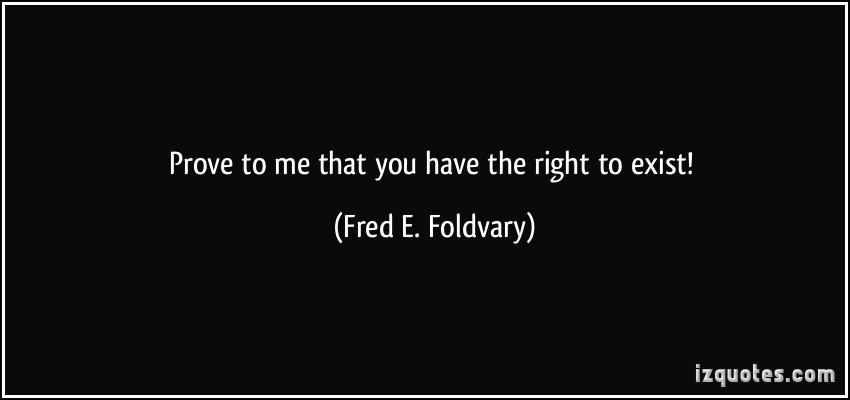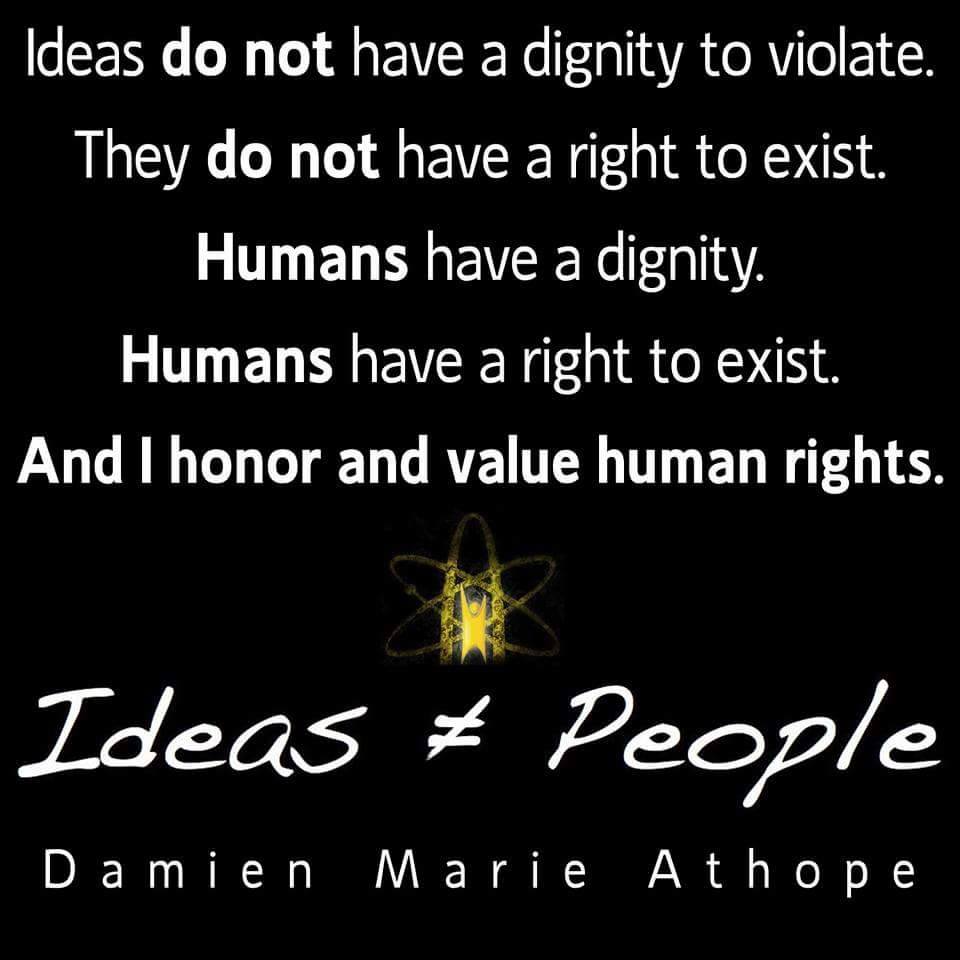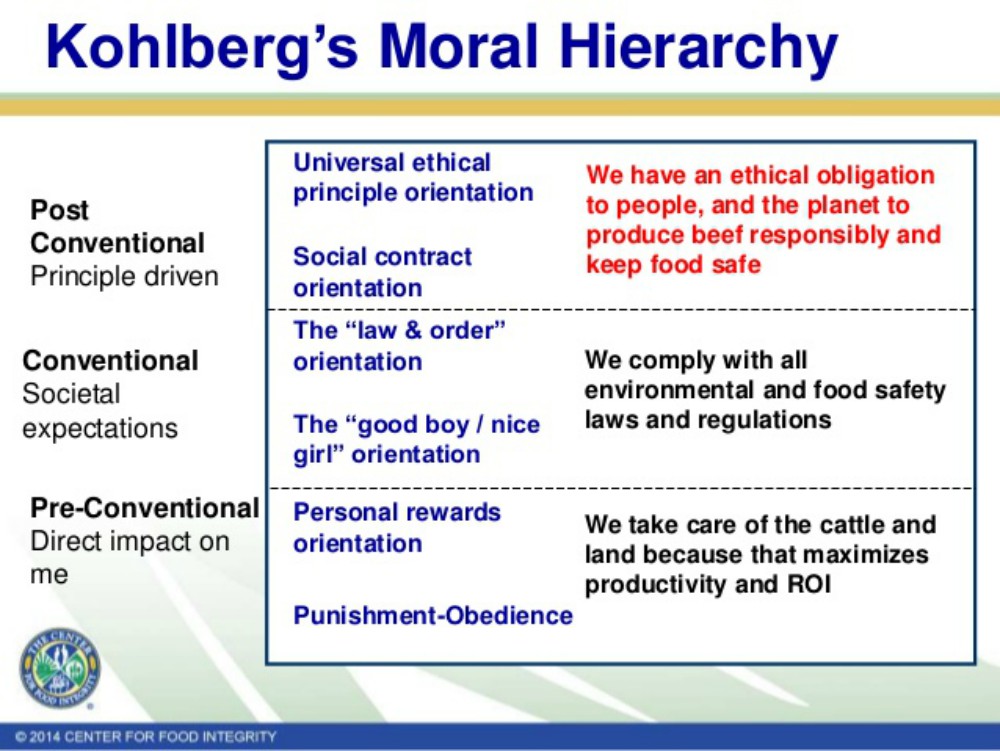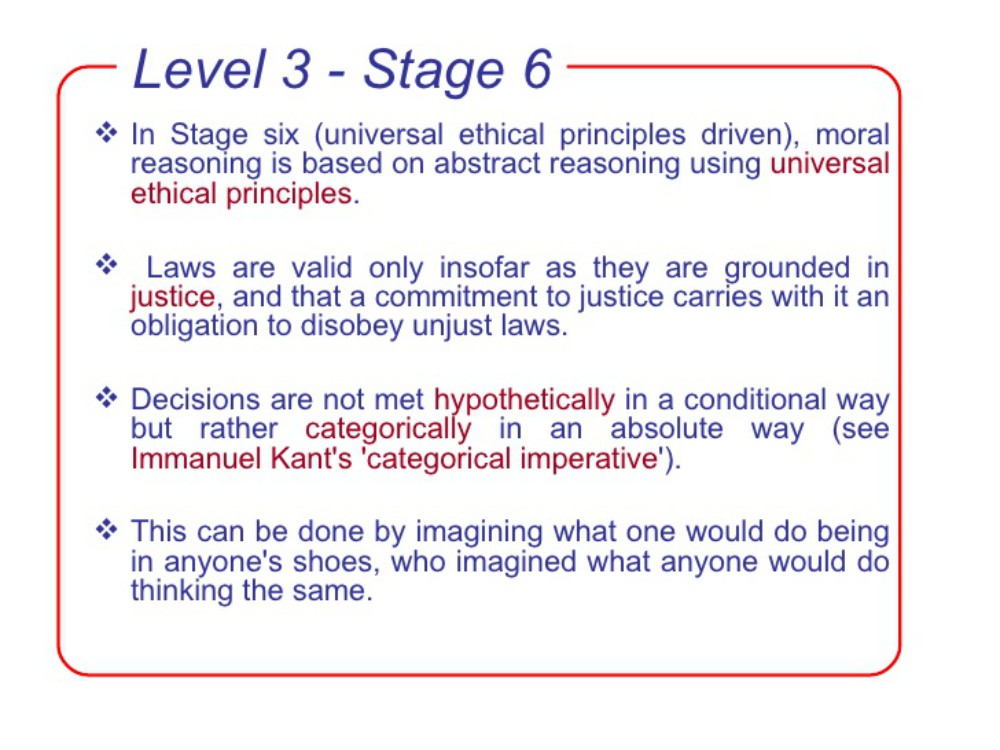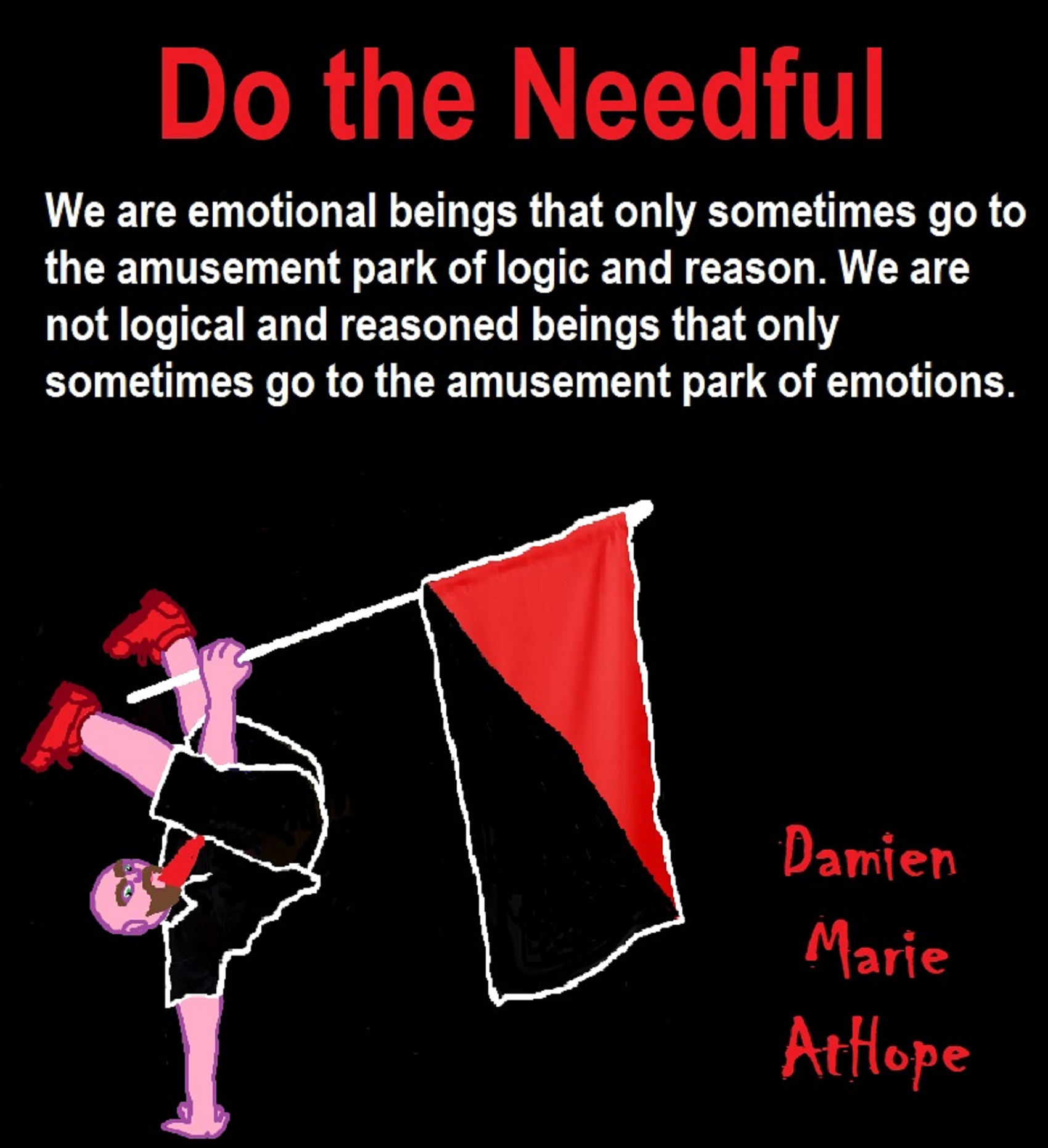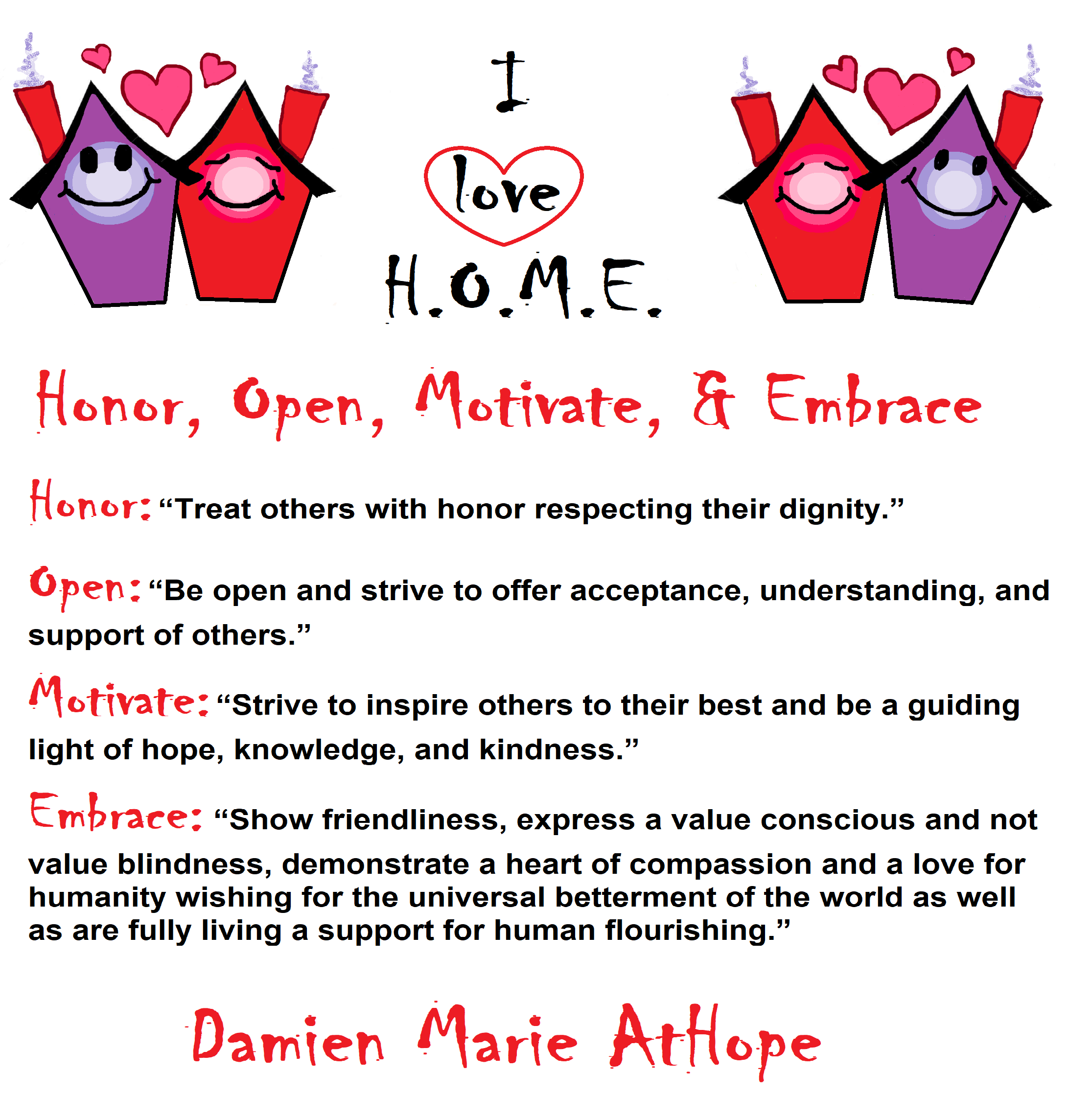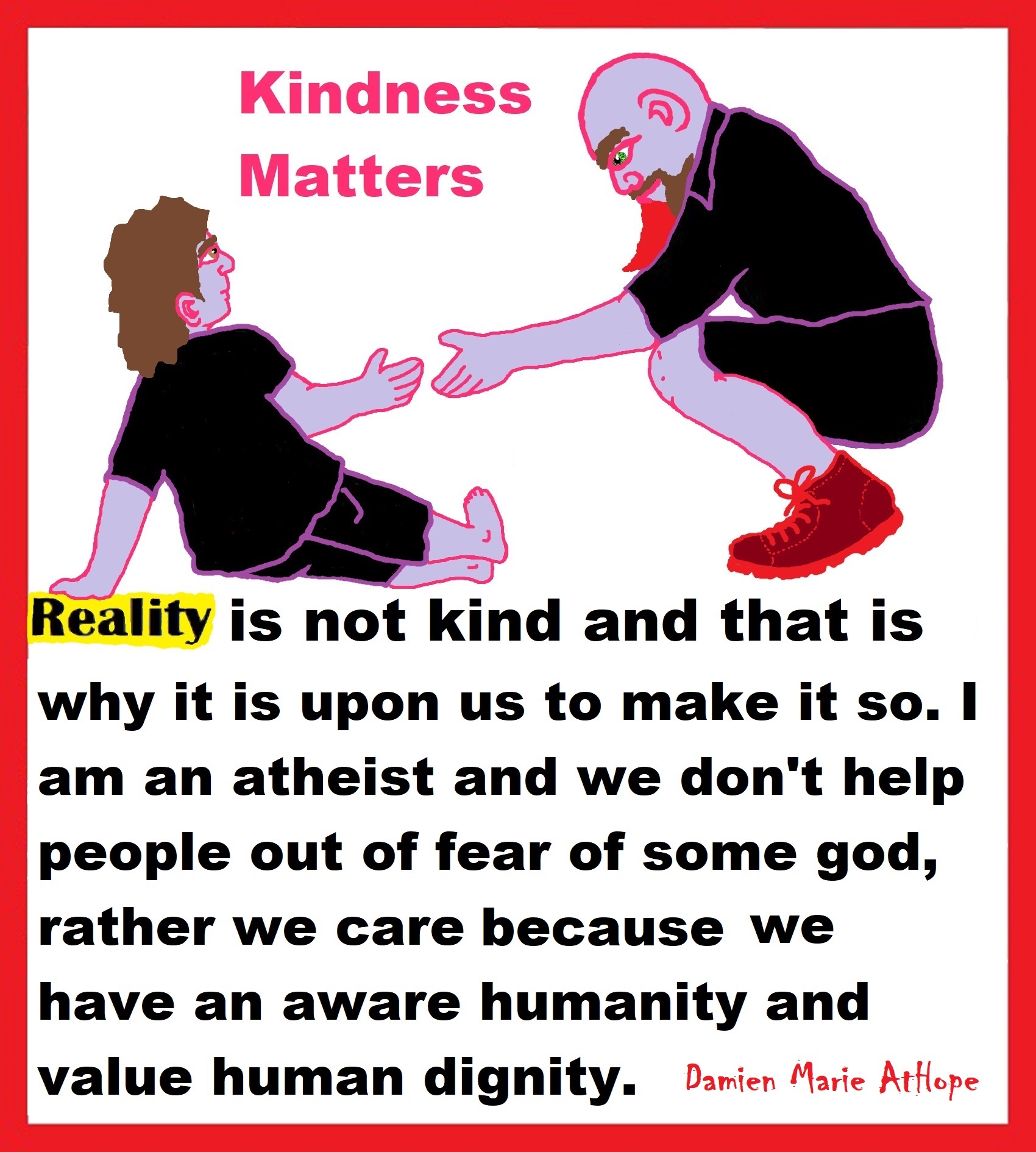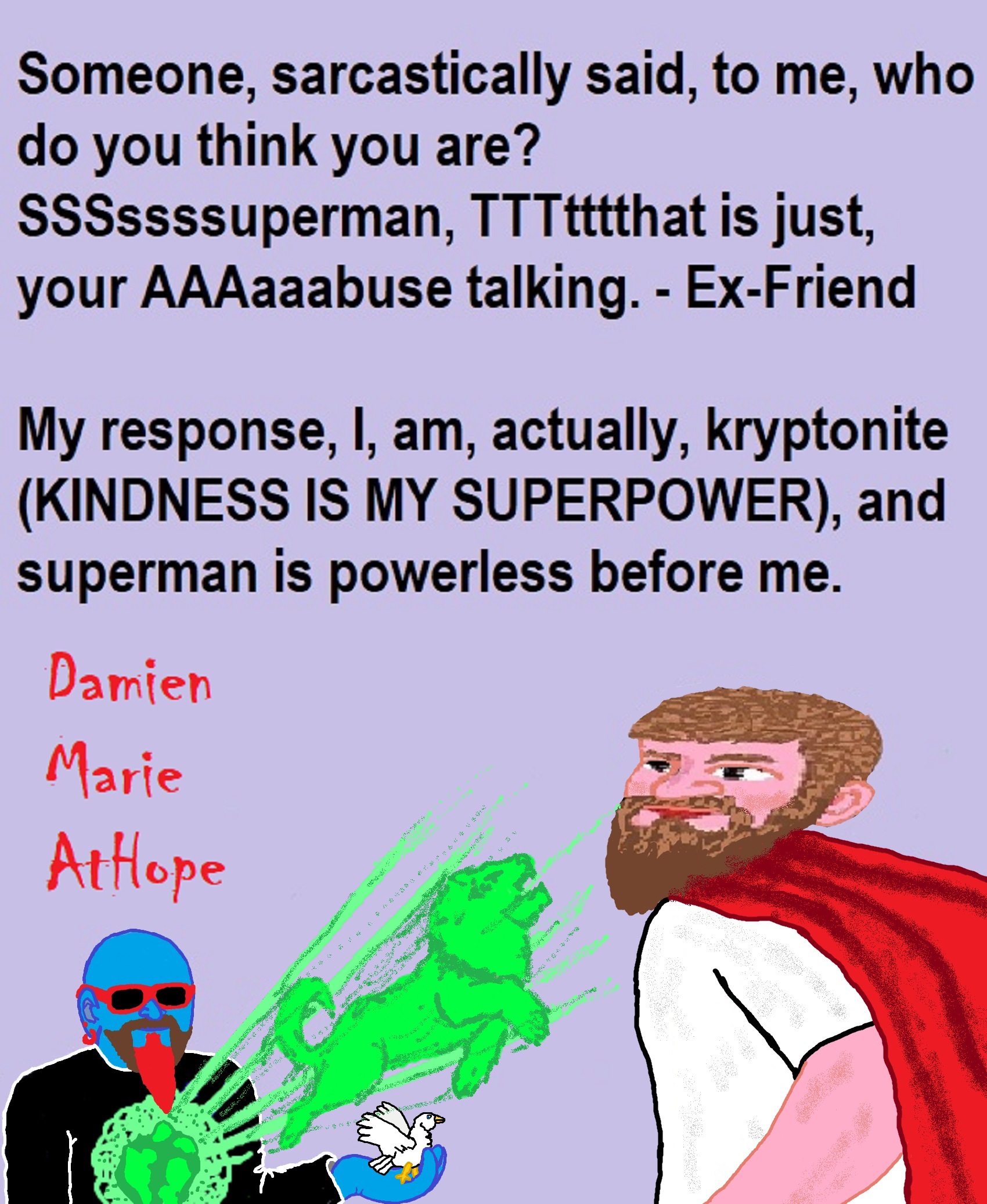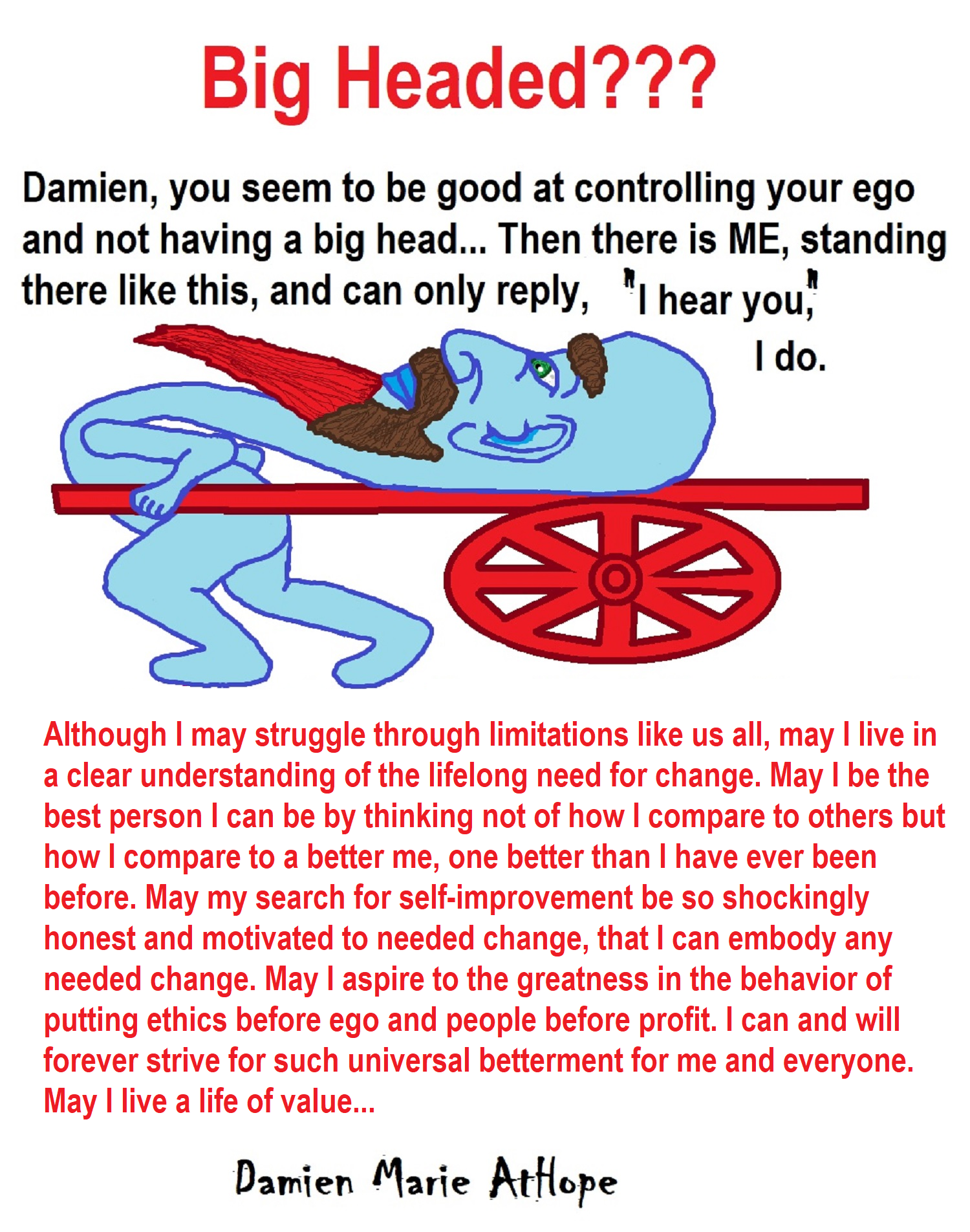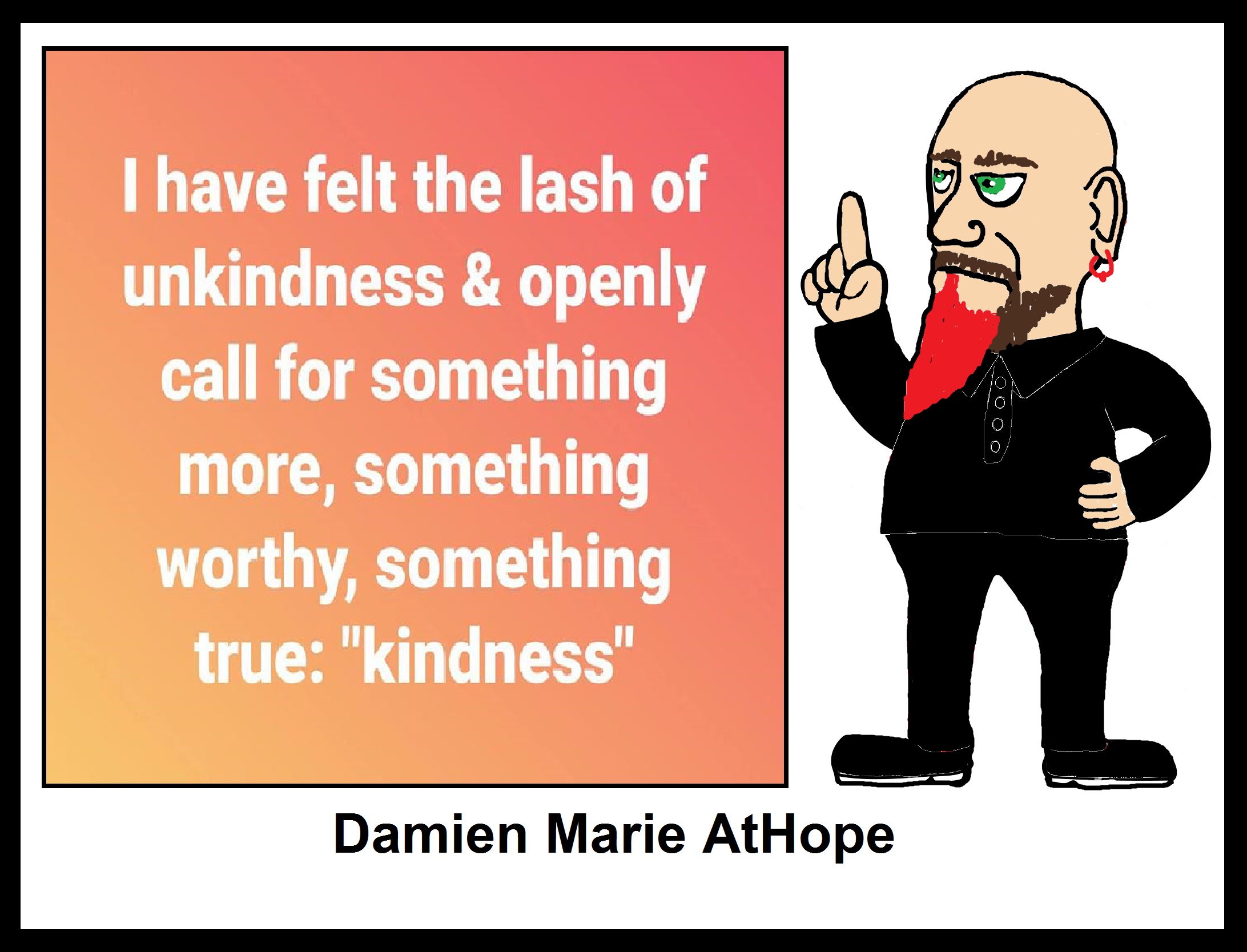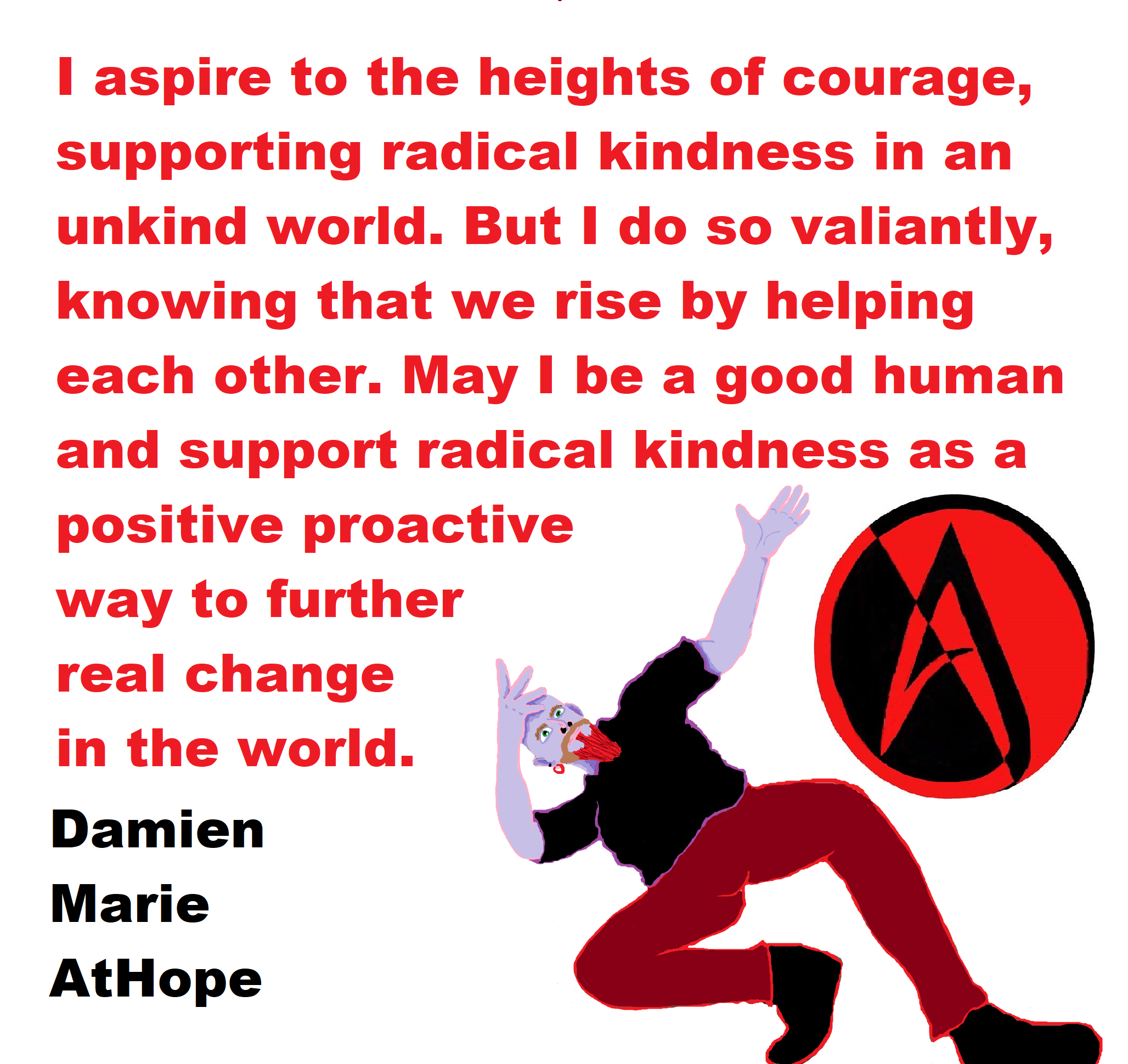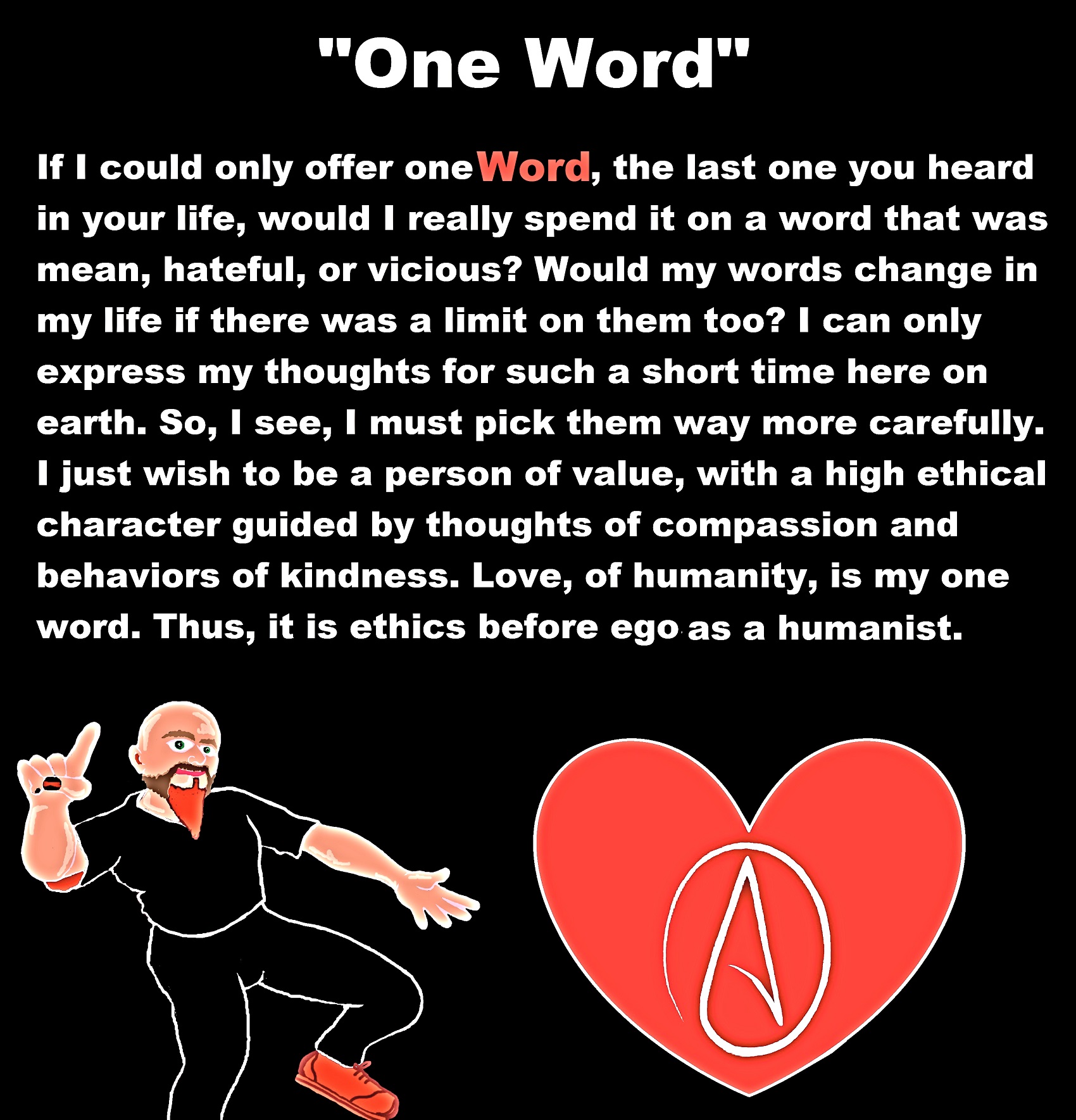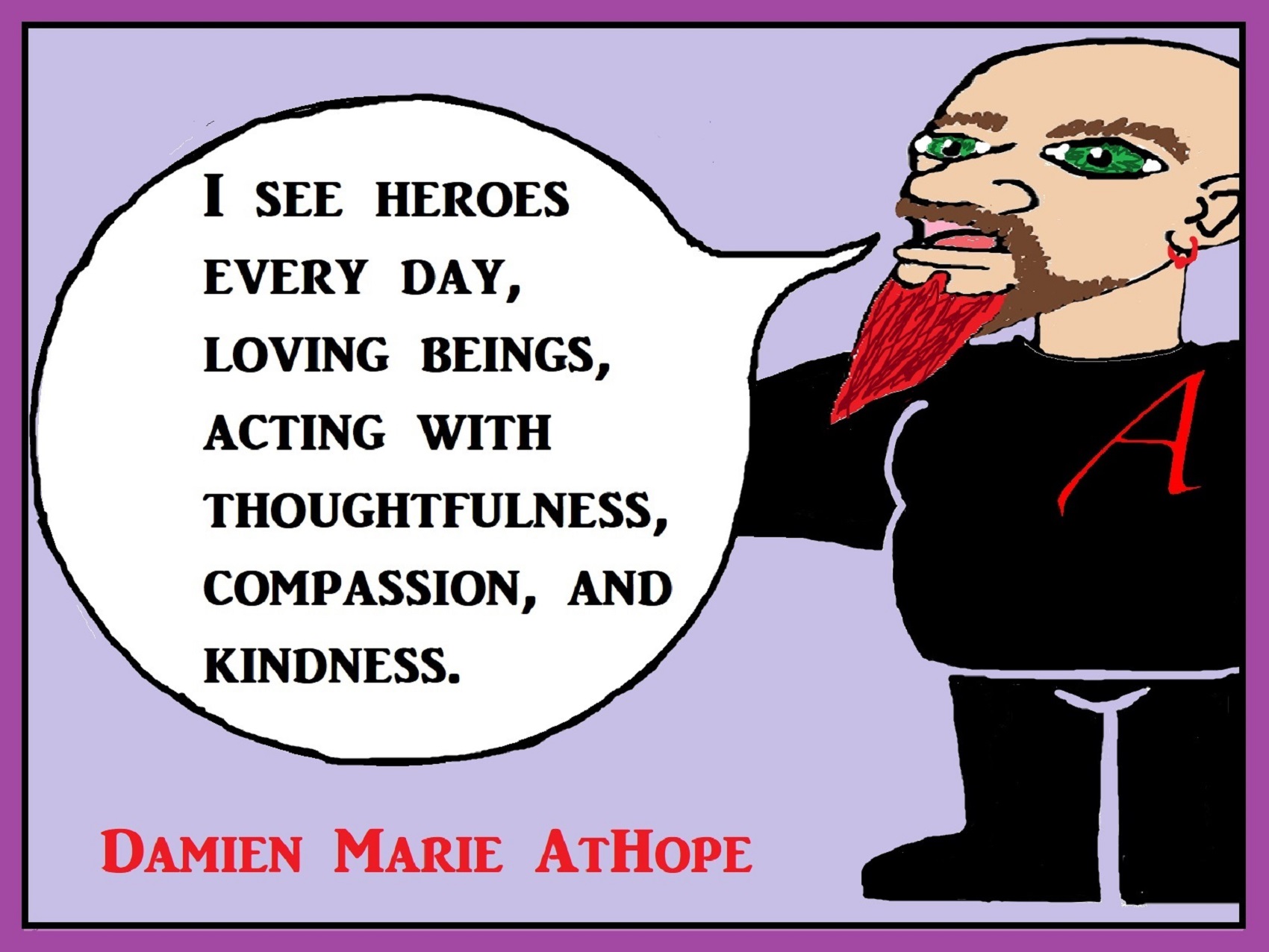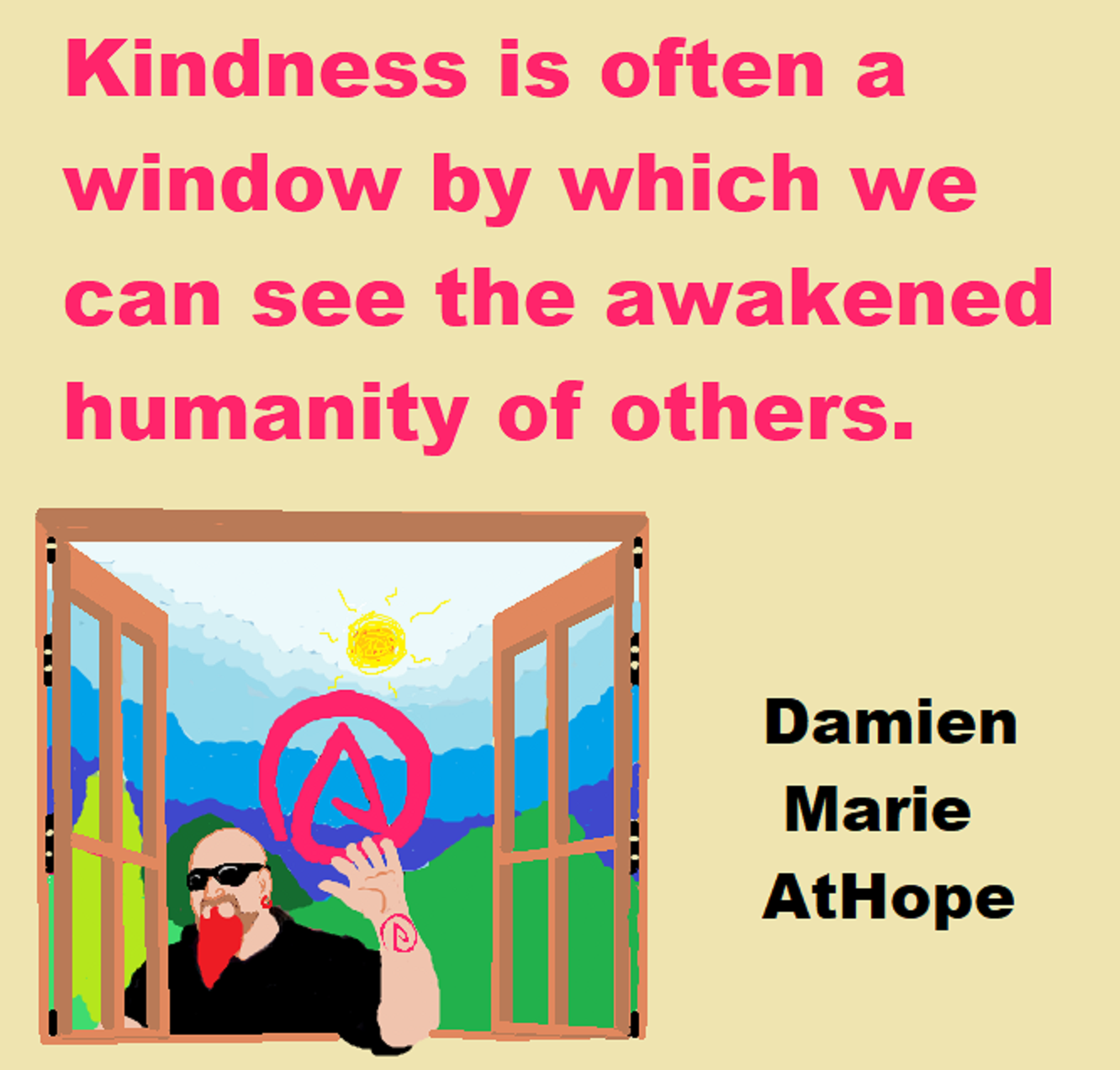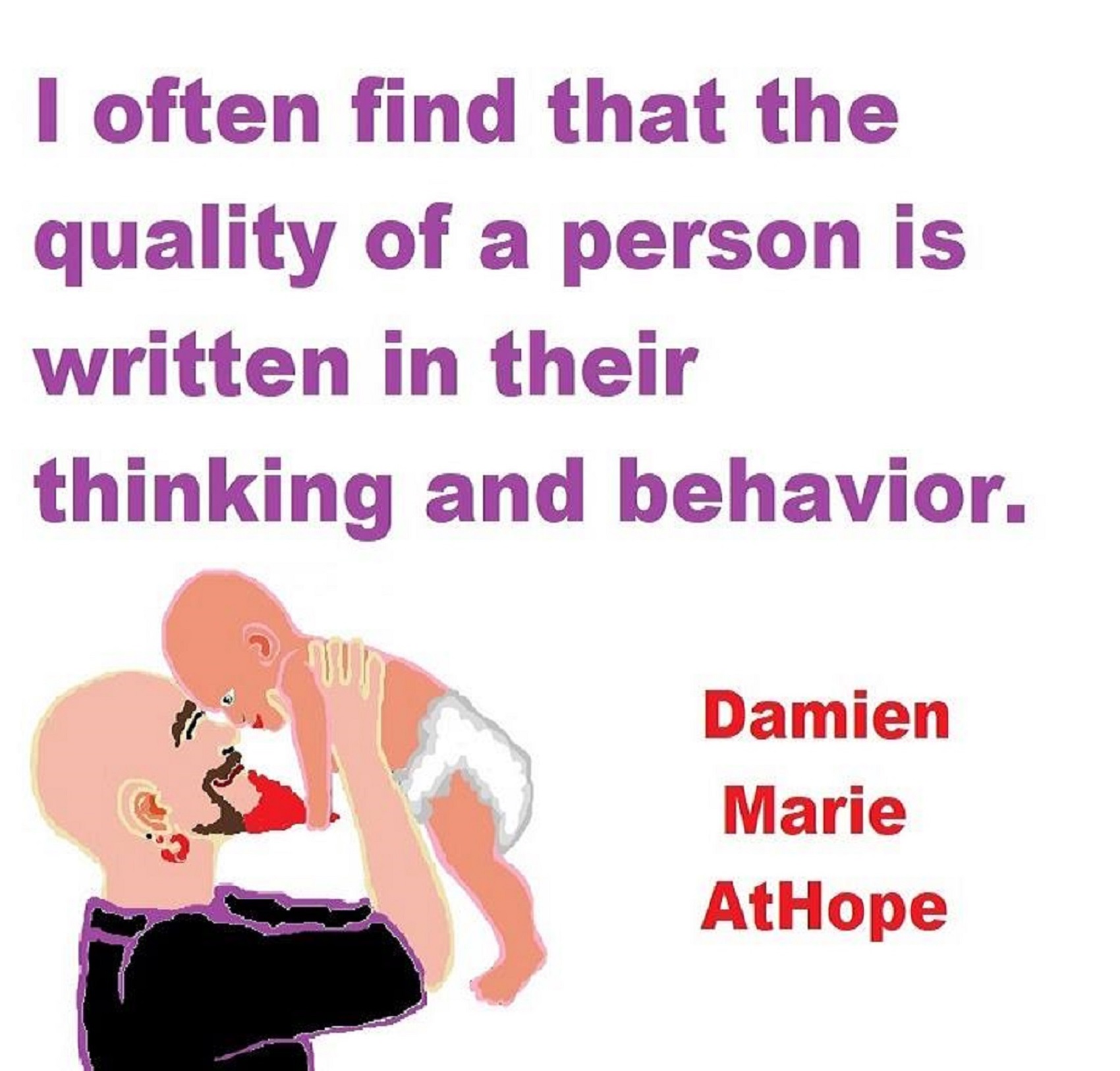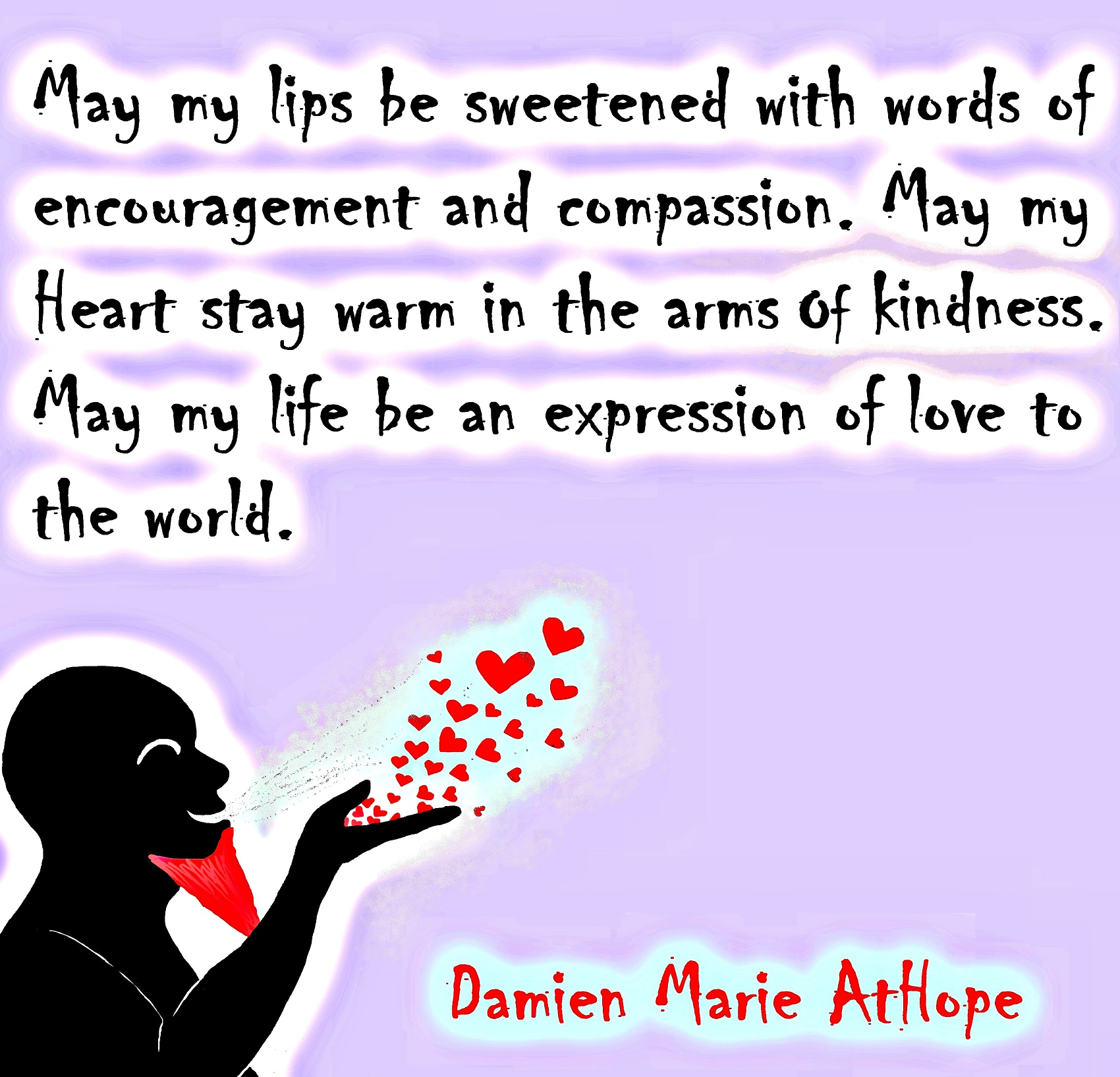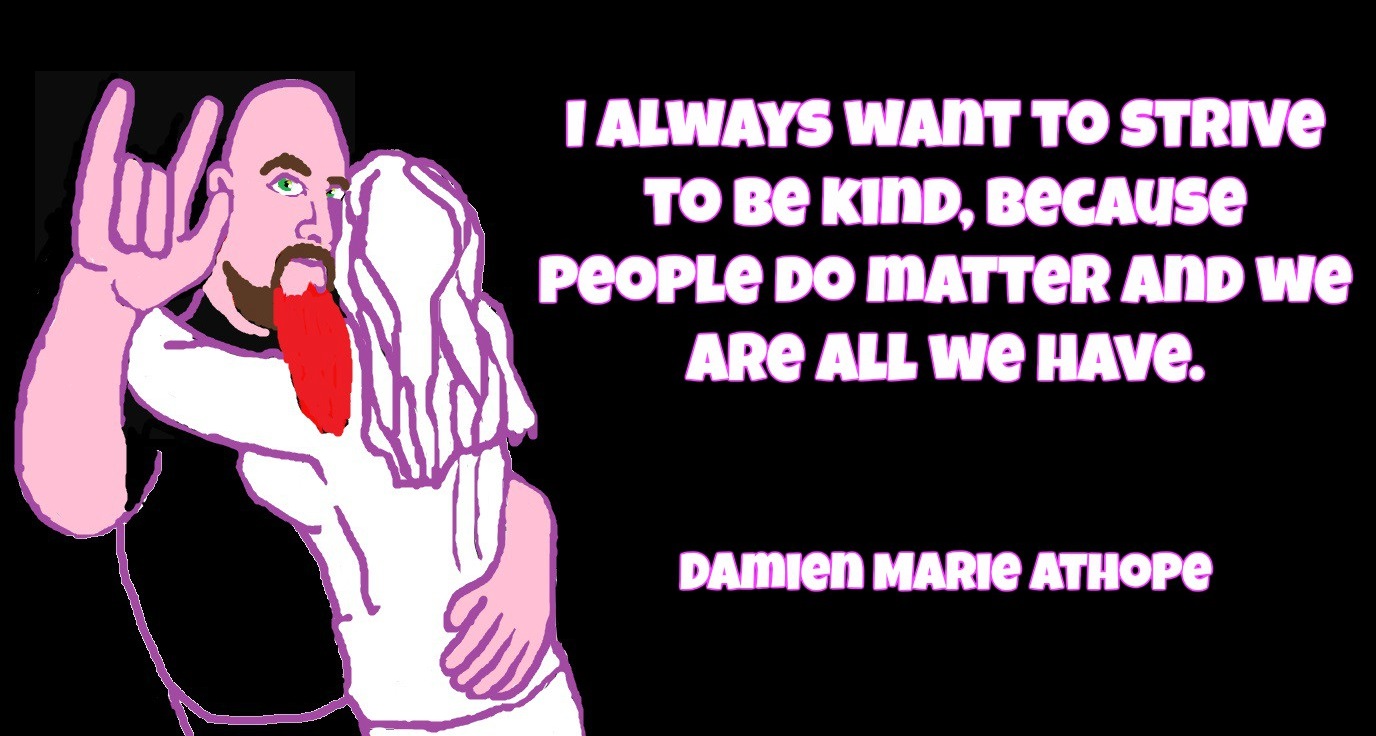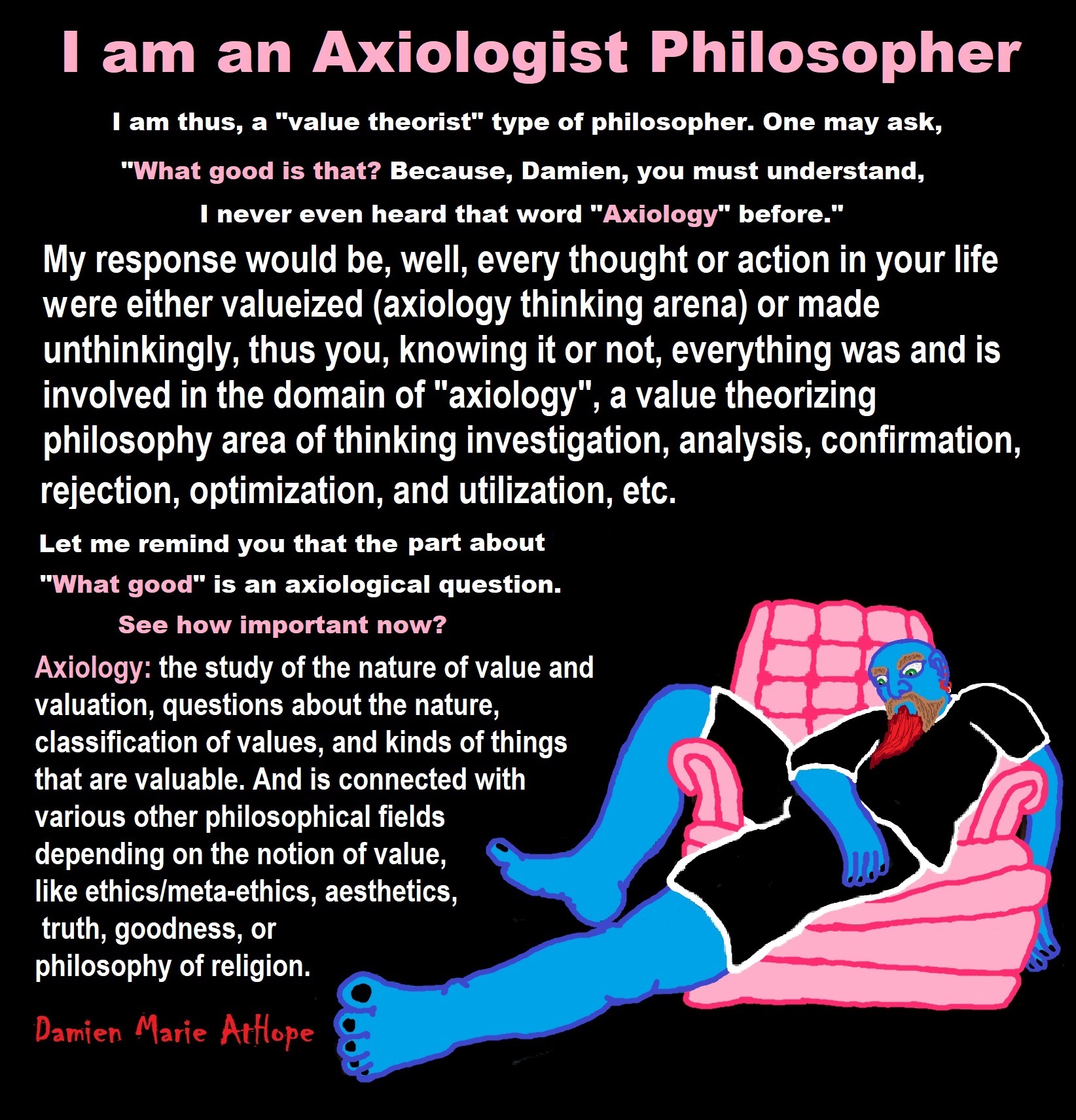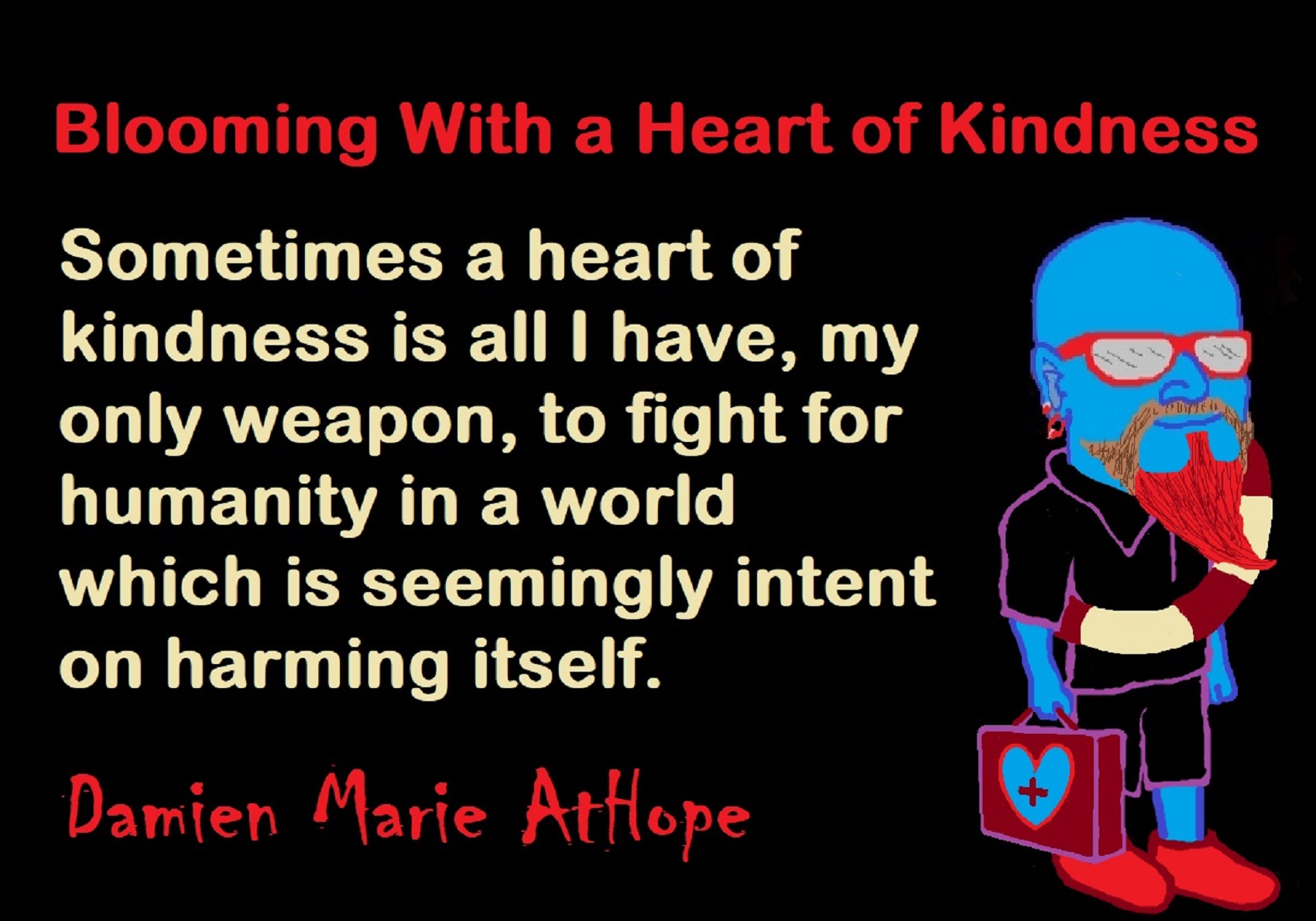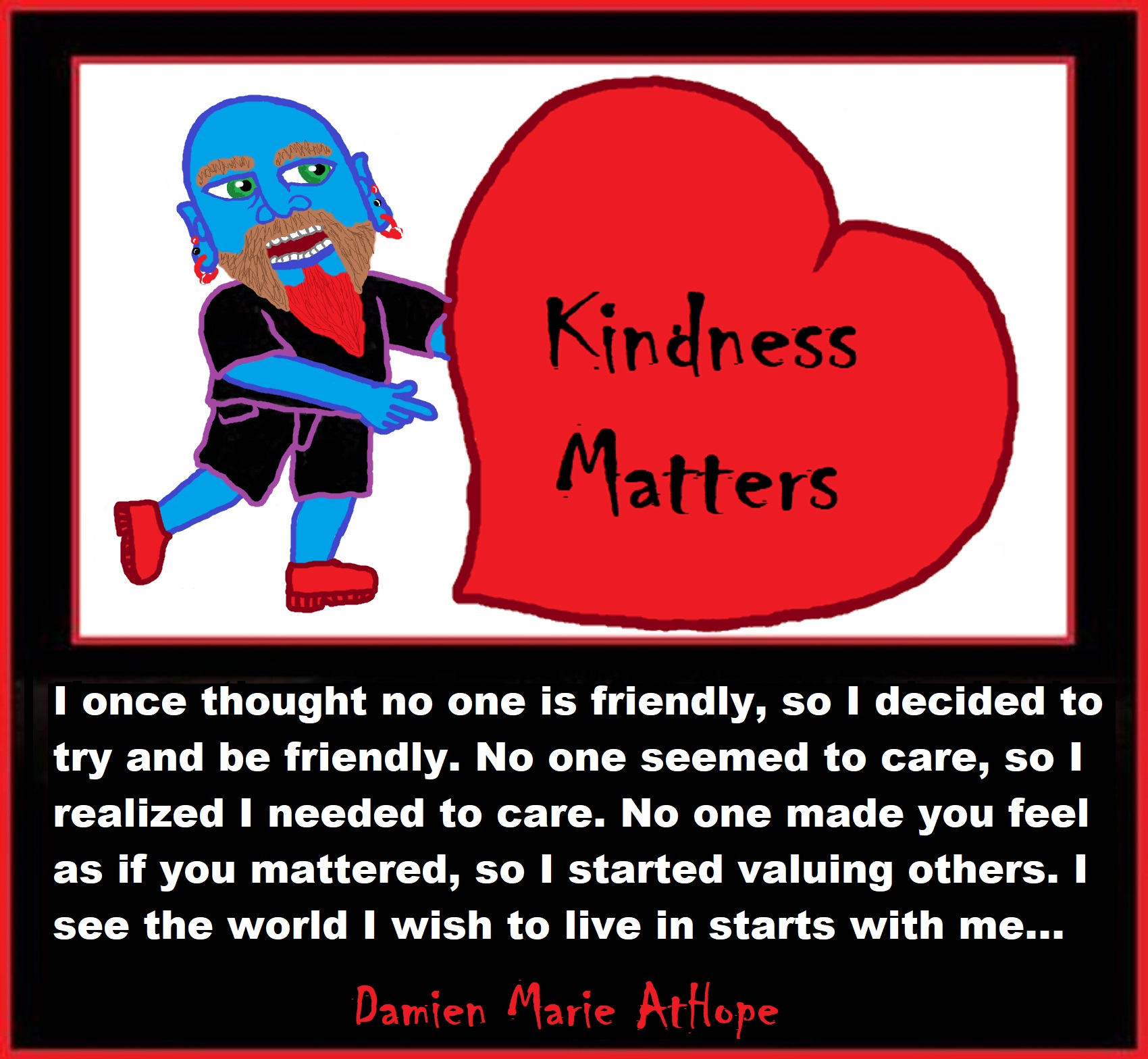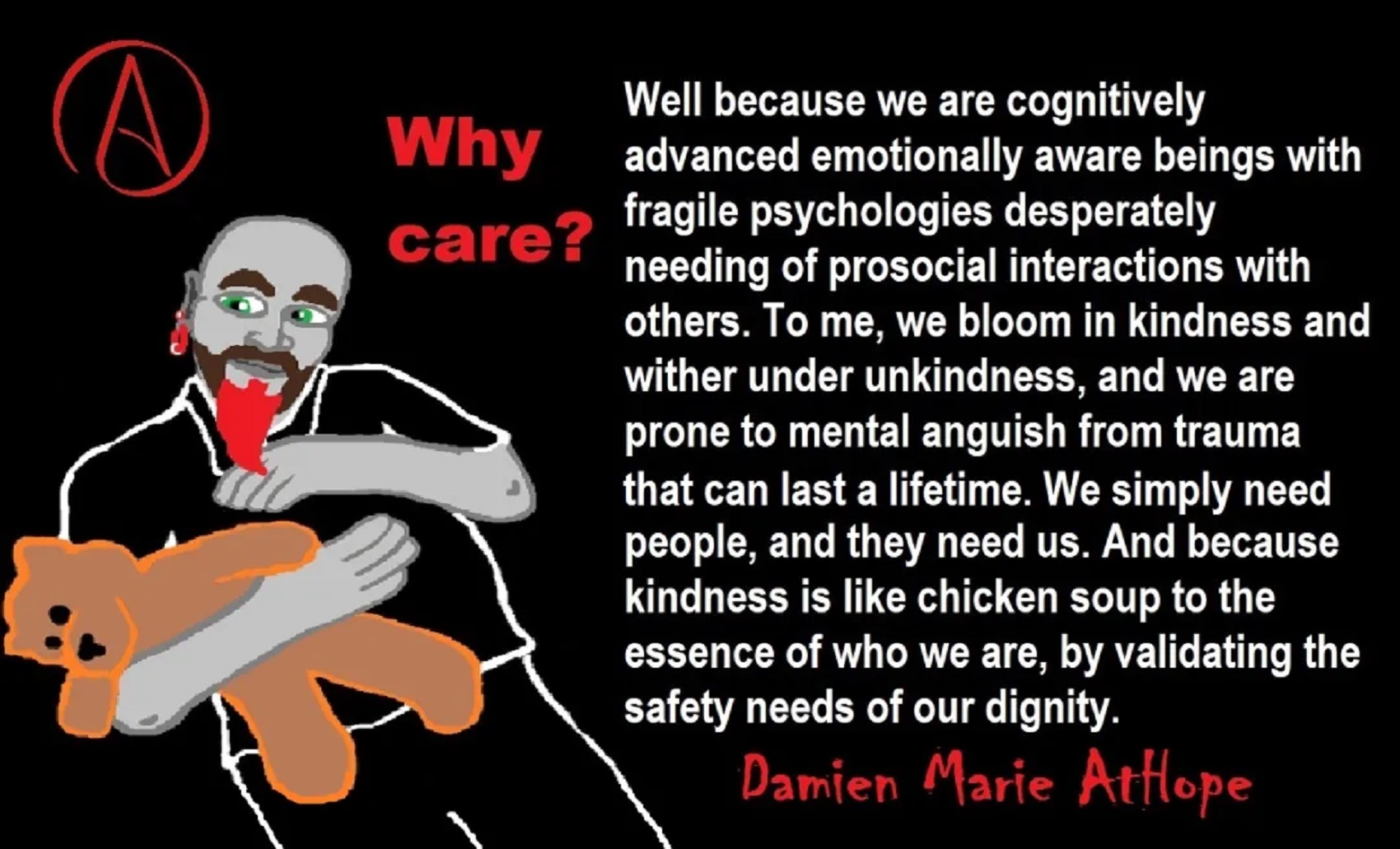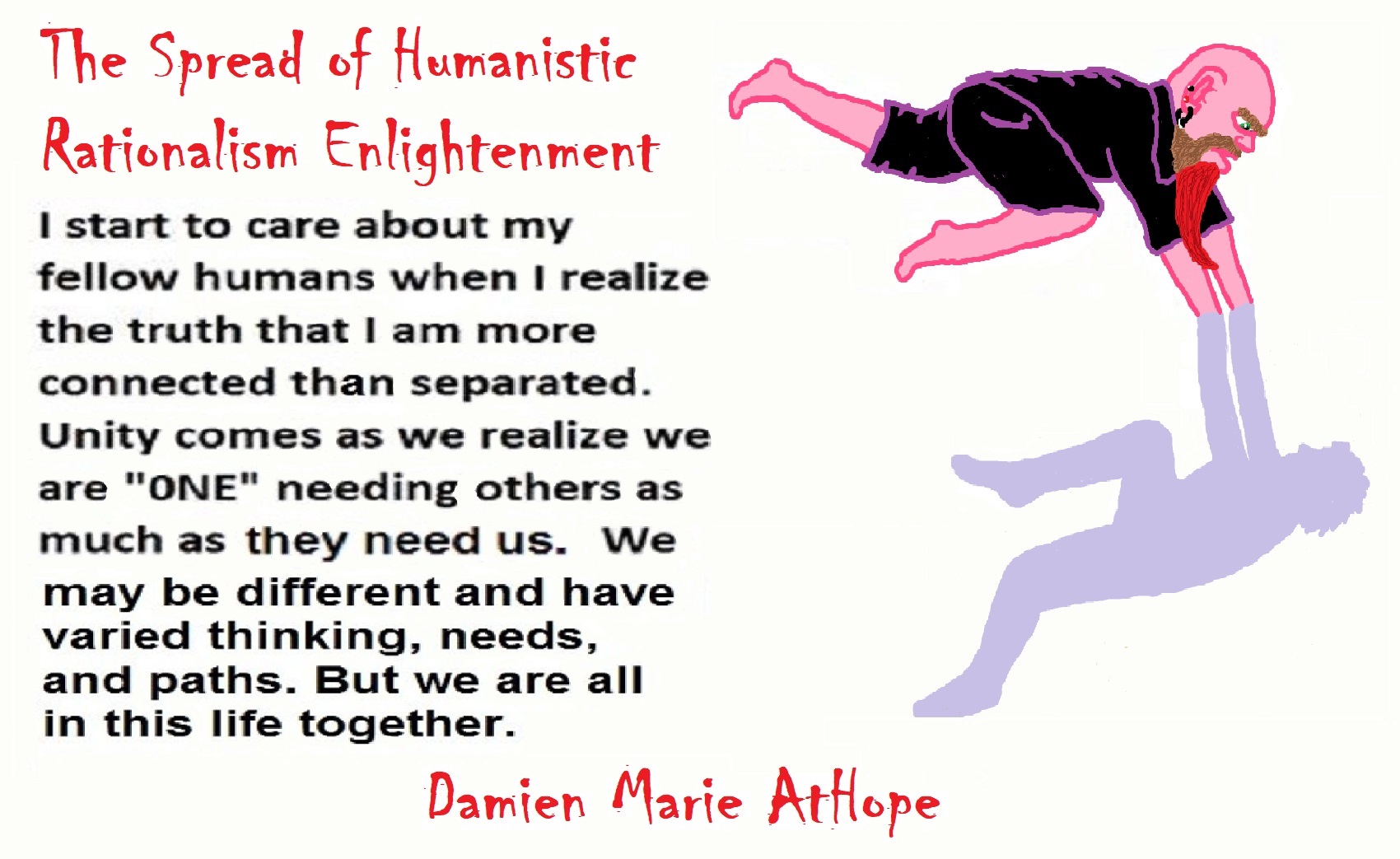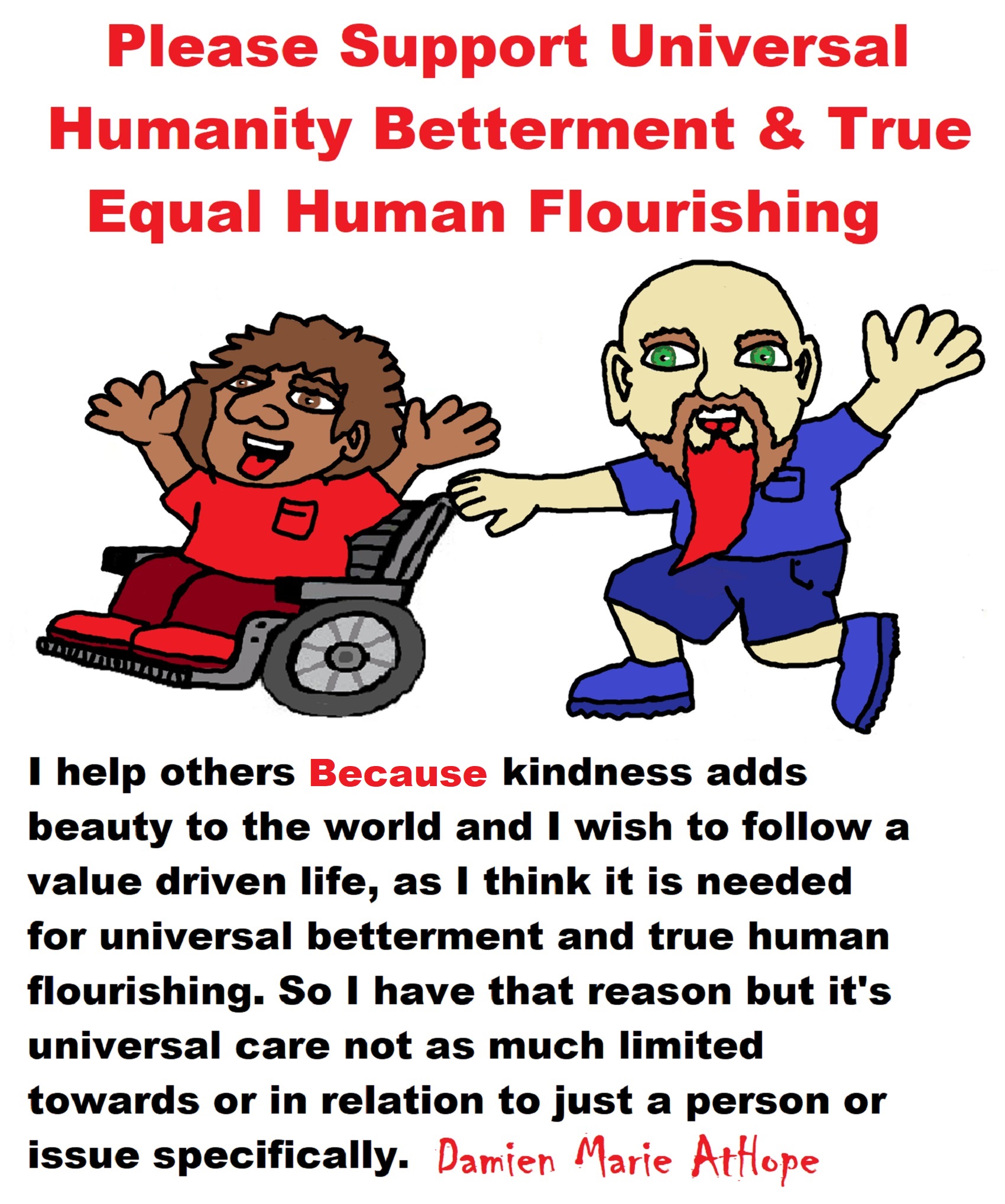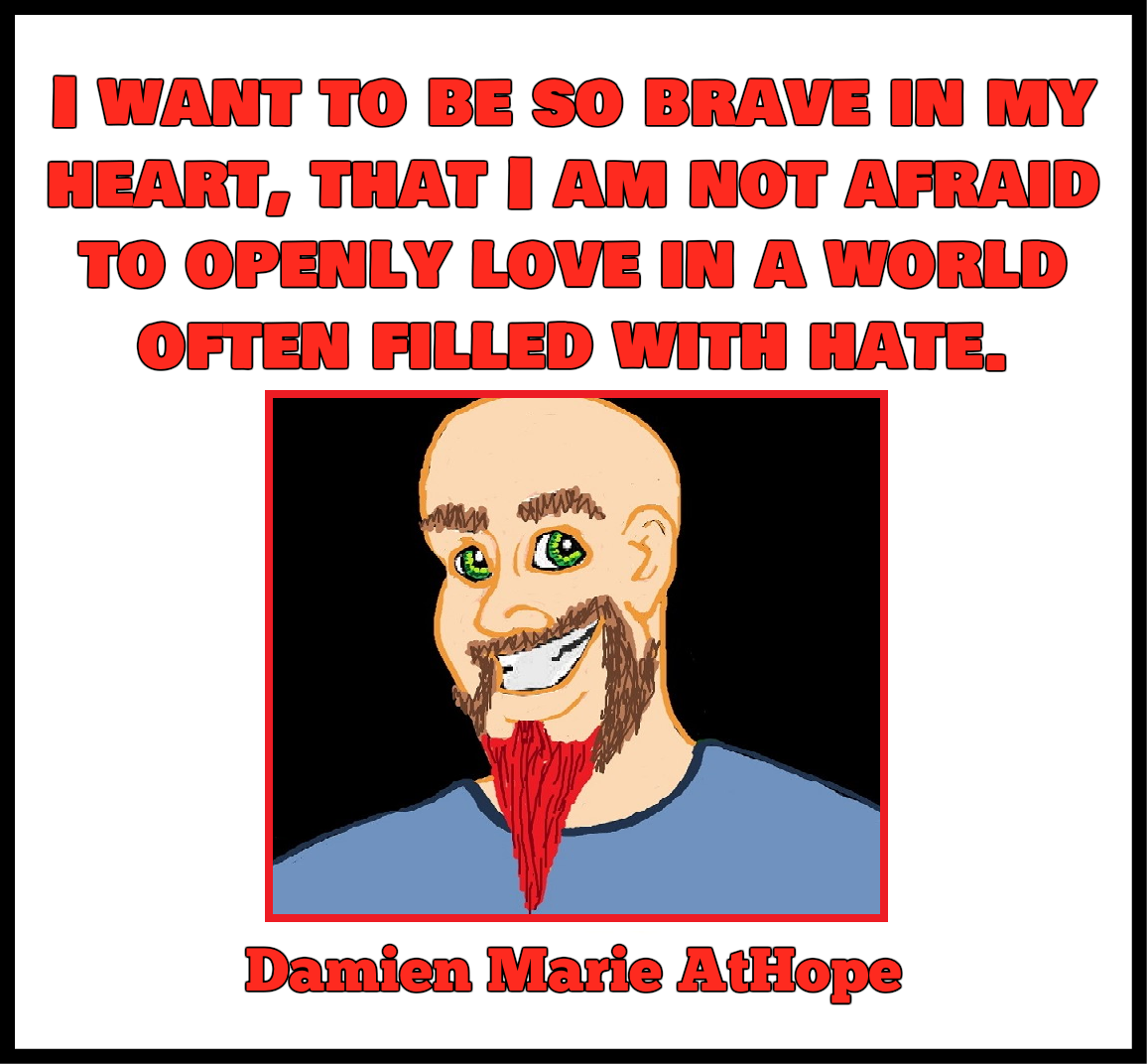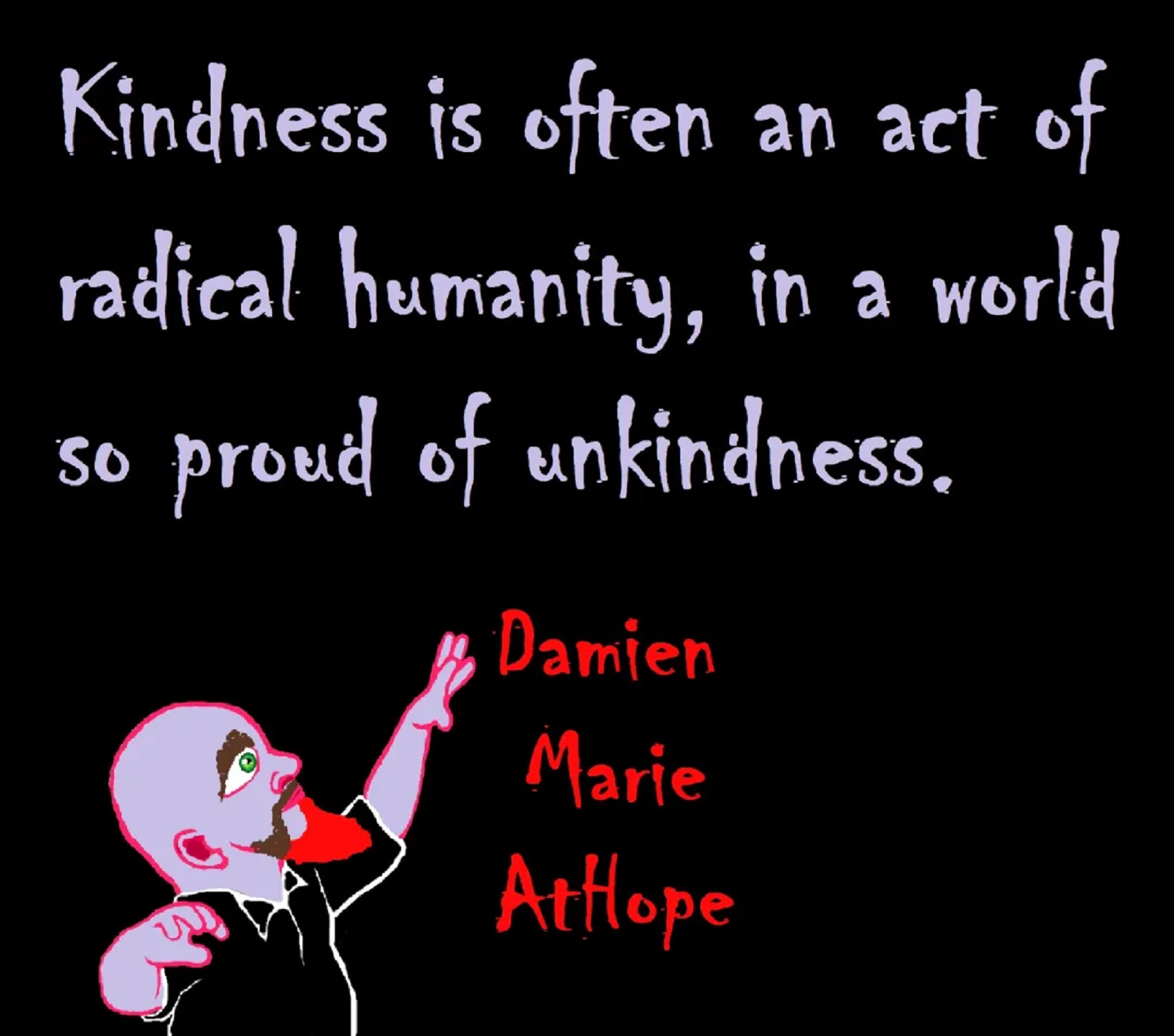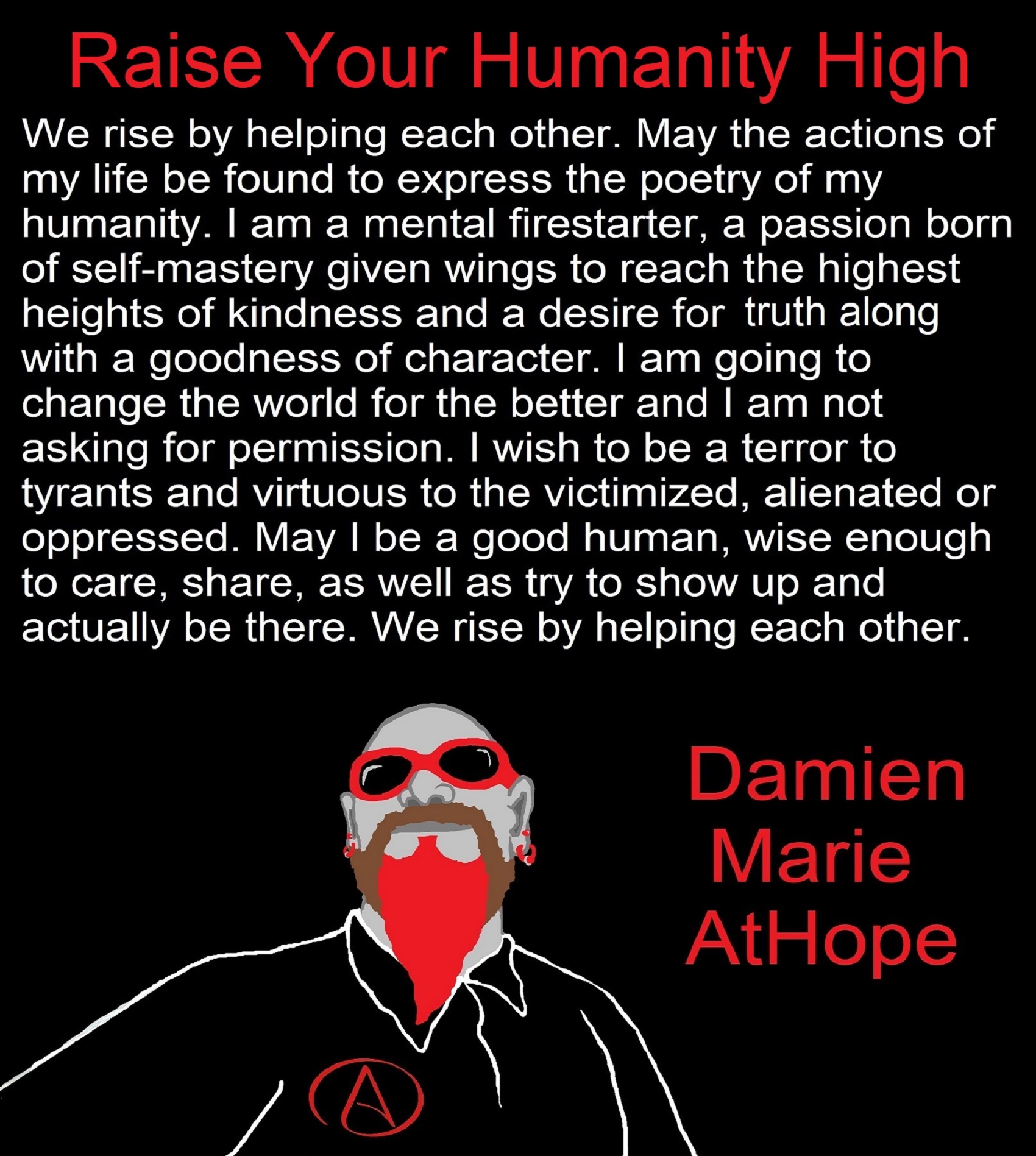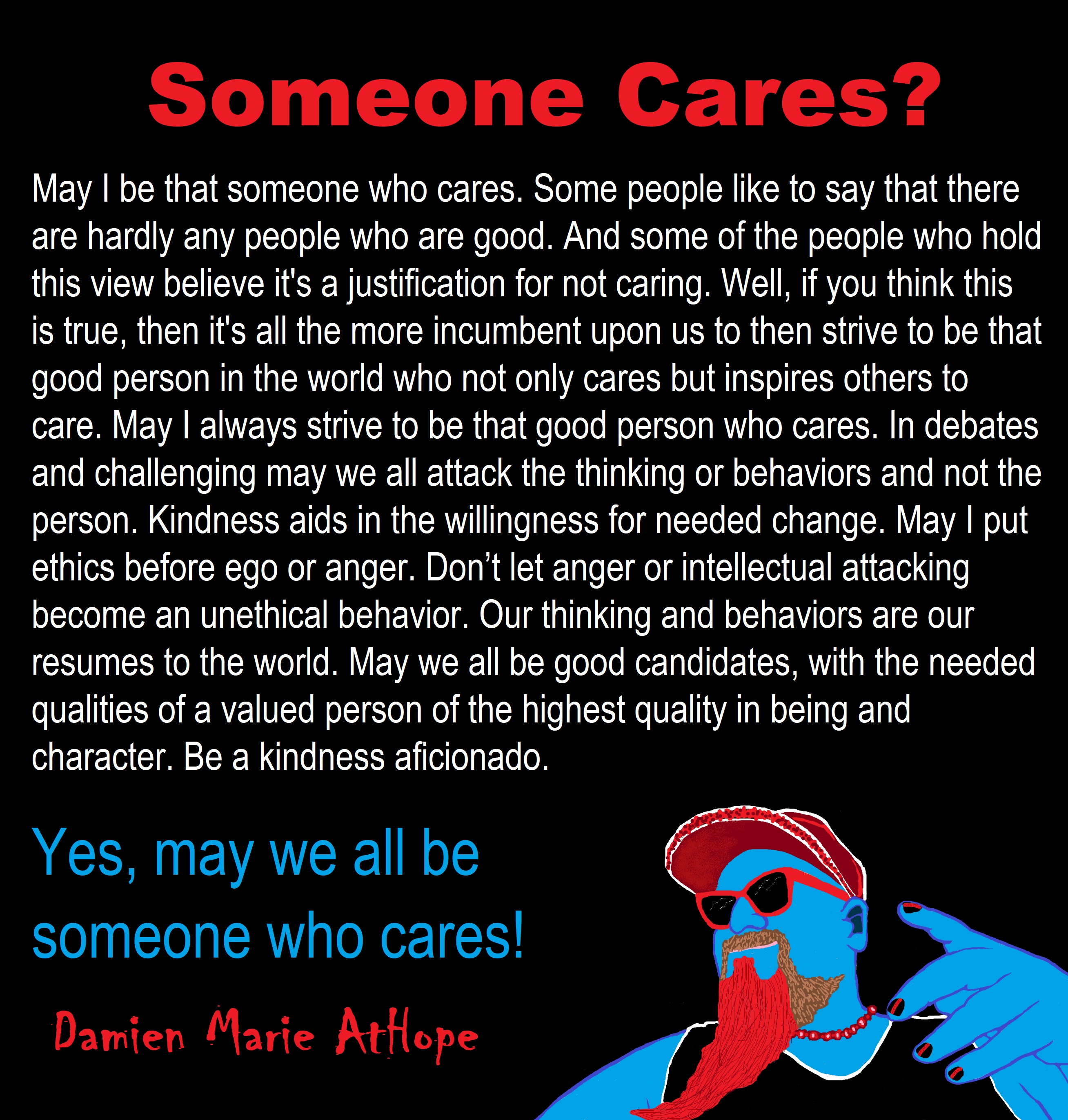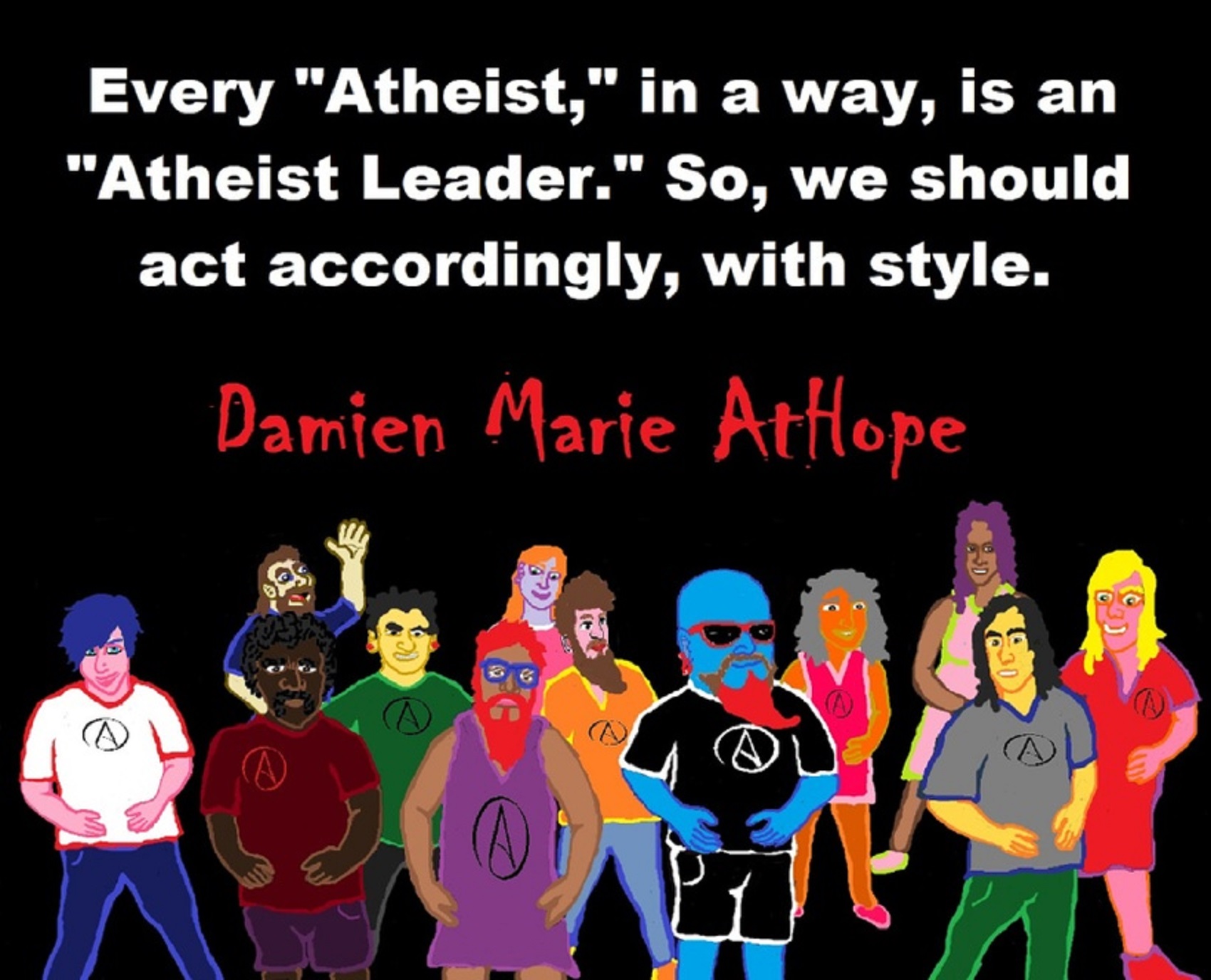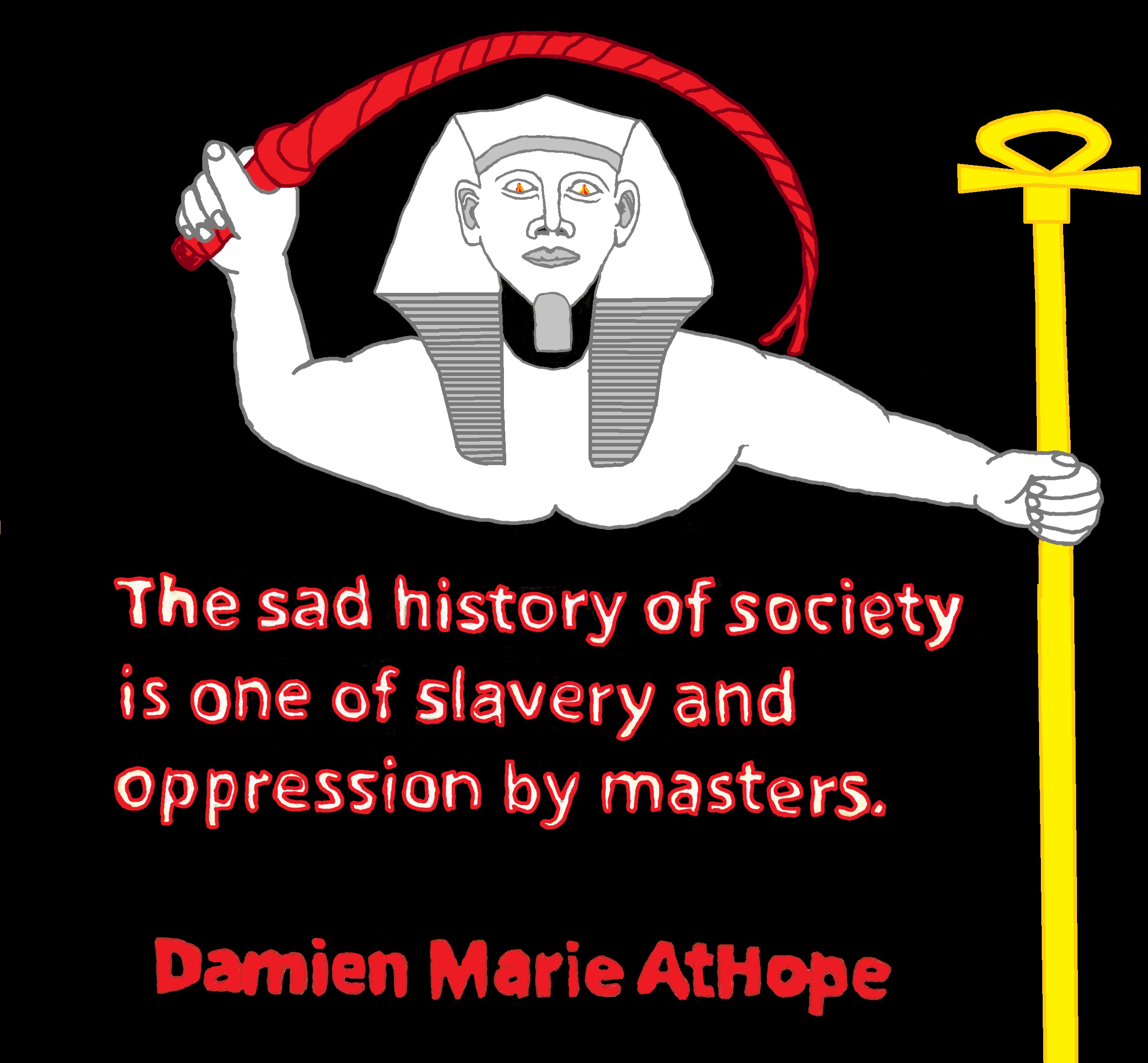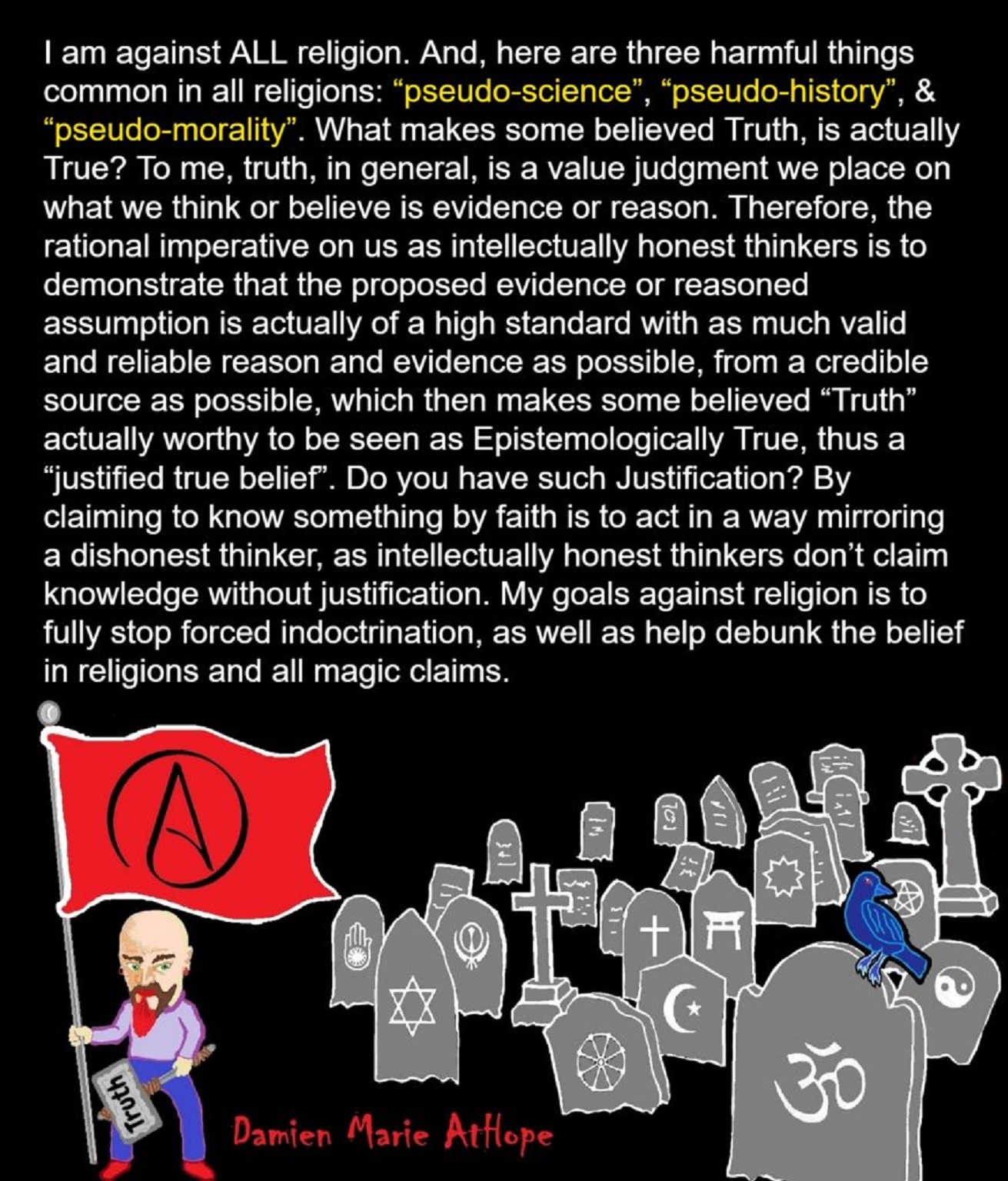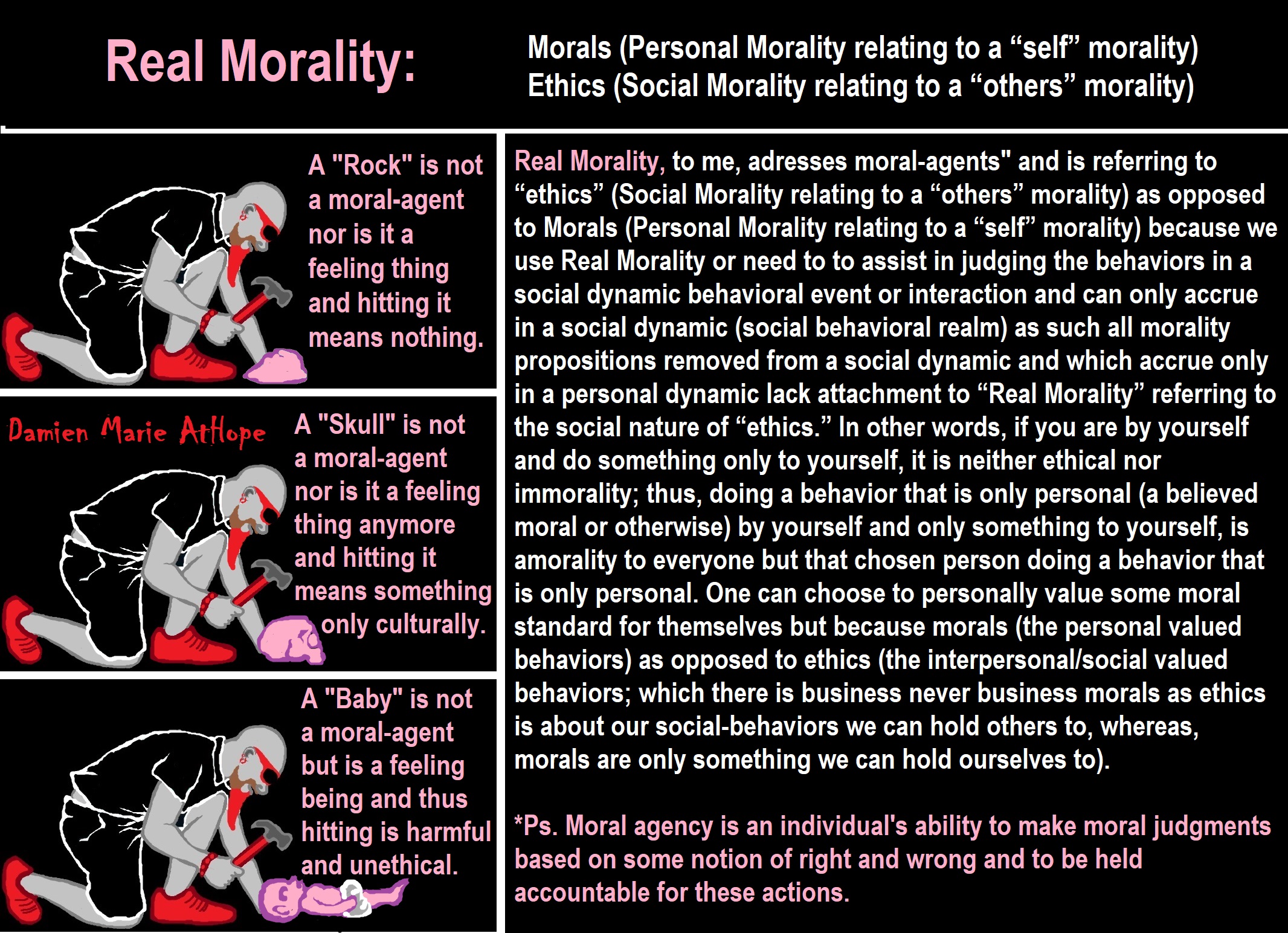
I am a positive person by choice and action and work to improve myself and others if I can.
The hard work one puts into self-improvement is a lifetime gift to their wellbeing and likely that of others around them as well.
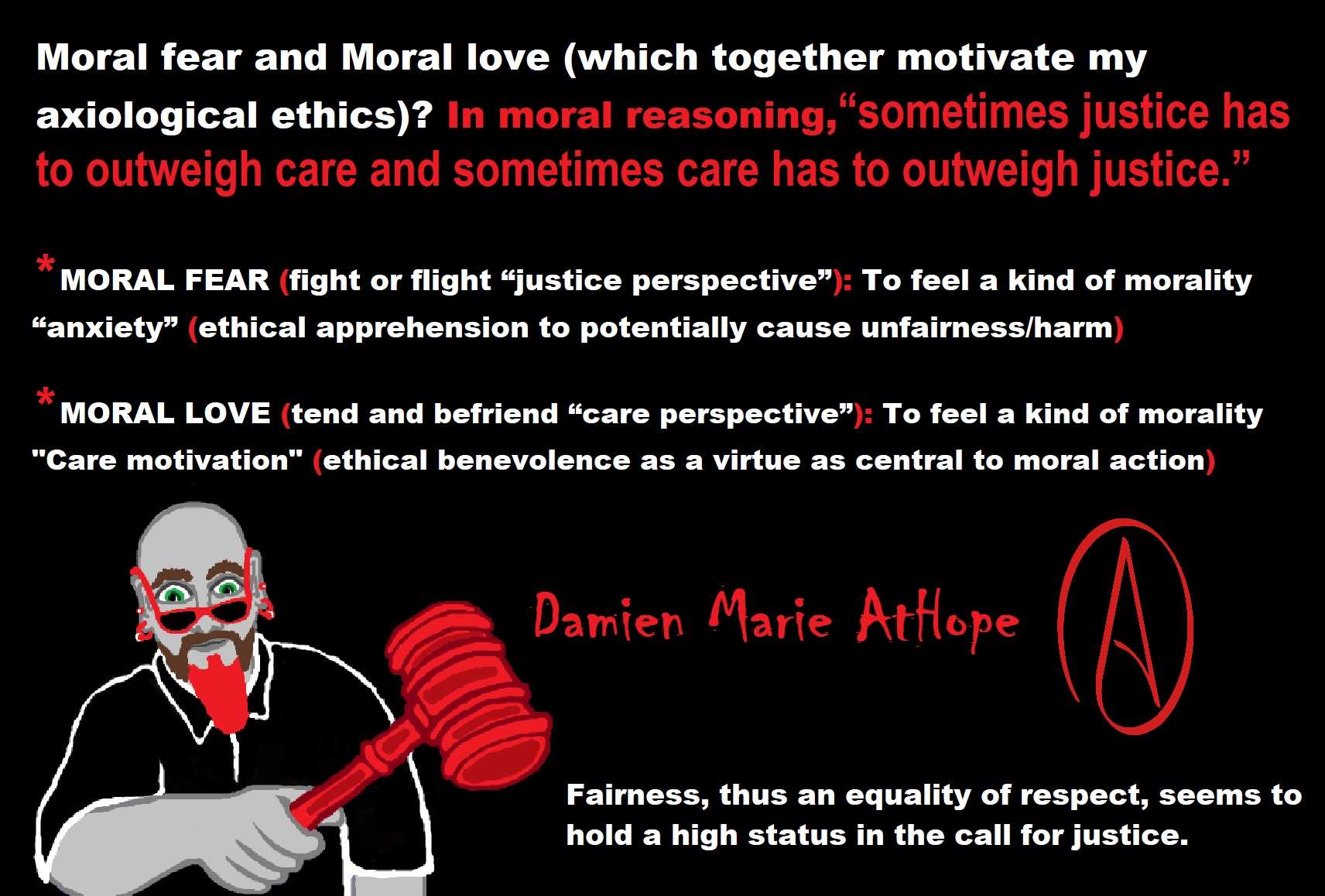
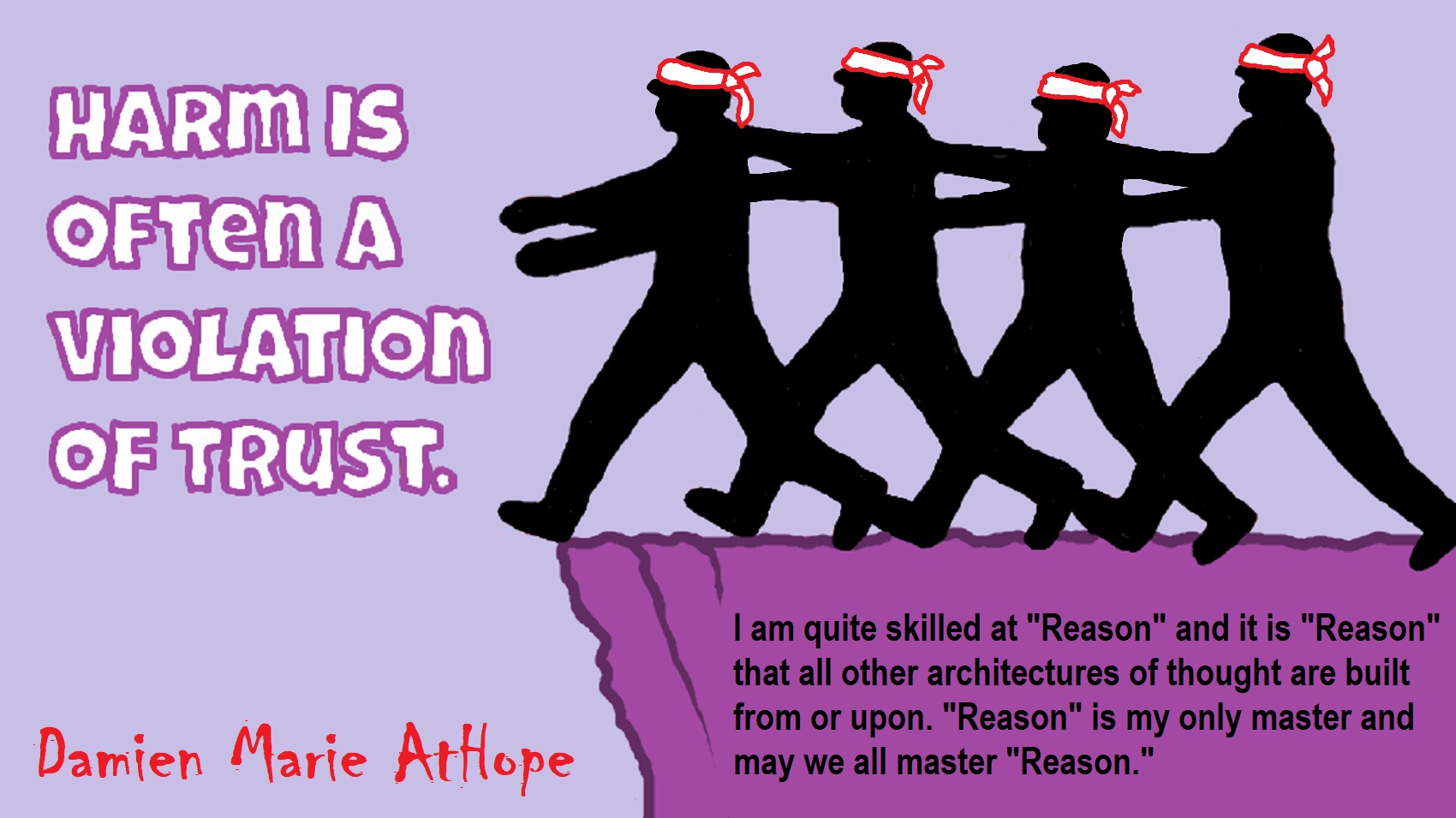
“Universal ethics: there are several ethical standards that are considered to be self-evident, and seem to apply to all people throughout all of history, regardless of cultural, political, social, or economic context. The non-aggression principle, which prohibits aggression, or the initiation of force or violence against another person, is a universal ethical principle. Examples of aggression include murder, rape, kidnapping, assault, robbery, theft, and vandalism. On the other hand, the commission of any of such acts in response to aggression does not necessarily violate universal ethics. There are obvious reasons why universal ethics are beneficial to society. For example, if people were allowed to kill or steal, this would lead to widespread chaos and violence, and would be detrimental to the well-being of society. Most people agree that it’s better to prohibit aggression than to allow everyone to commit it. Therefore, aggression is intrinsically immoral. Although nearly all societies have laws prohibiting aggression, this does not mean that universal ethics are necessarily reflected by that society’s government or its dominant ideology. In ethics, a ‘universal code of ethics’ is a system of ethics that can apply to every sentient being.” 1
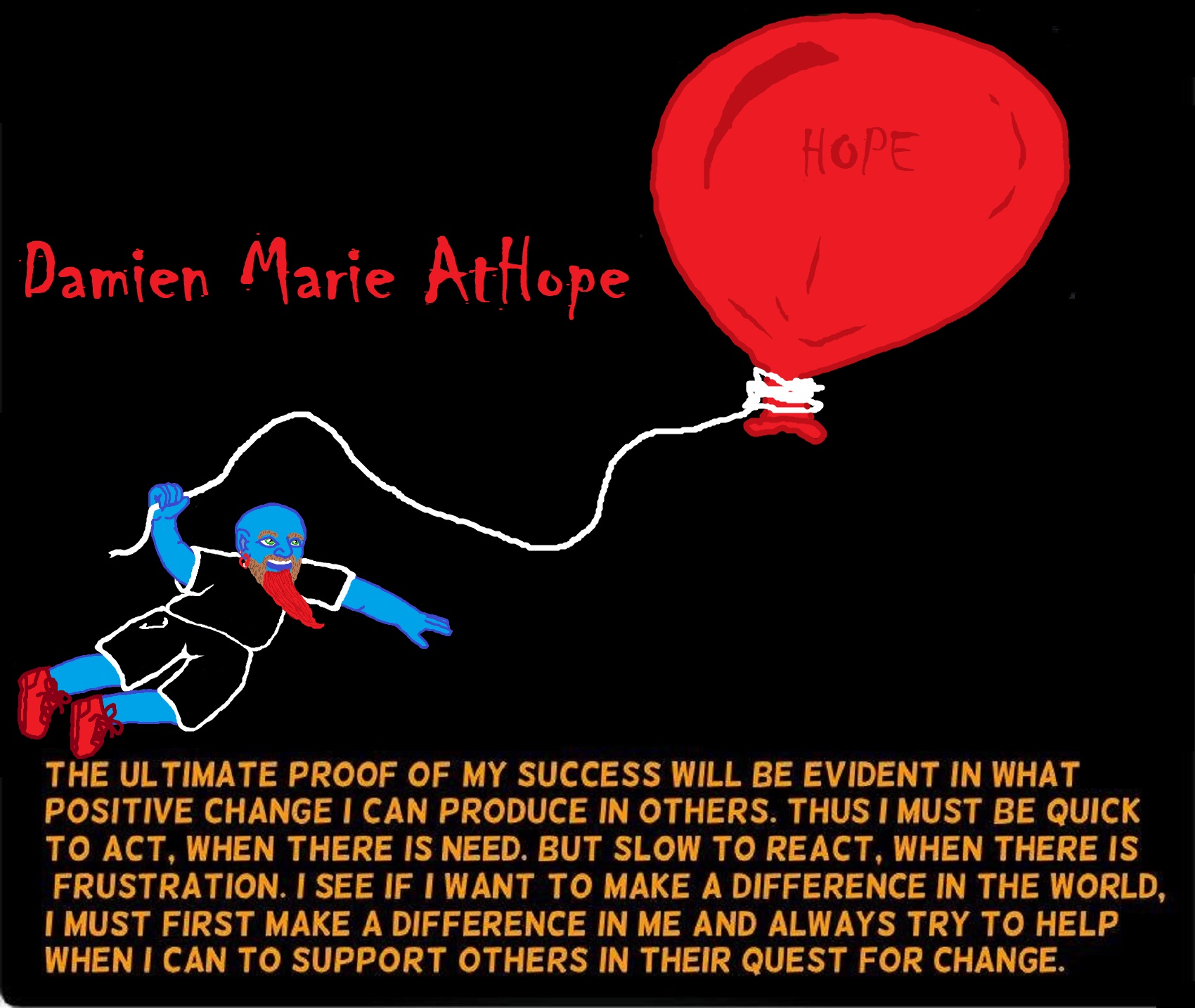
But What Good is a Set of Principles?
There are many tools for decision making, but few (secular) guides to indicate when situations might have an ethical implication. Yet this awareness is a crucial first step before decisions are made. Recognizing the moral context of a situation must precede any attempt to resolve it. Otherwise, what’s to resolve?
Ethical dilemmas rarely present themselves as such. They usually pass us by before we know it or develop so gradually that we can only recognize them in hindsight – a little like noticing the snake after you’ve been bitten. But what are the signs that a snake might be present? An ethical framework is like a ‘snake detector’.
I offer the following principles as landmarks – generic indicators to be used as compelling guides for an active conscience. They are NOT absolute rules or values. They are more like a rough measurement where an exact one is not possible. They often conflict with each other in practice, and some will trump others under certain circumstances. But as principles that need to be considered, they appear constant.
These principles are compatible with the argument that we should simply follow our intuition and rely on the ‘inner voice’. However, that voice is not always audible, and today’s society presents a wide range of complex circumstances that require more guidance than simply ‘concern for others’ or ‘does it feel right?’ And so these principles are offered effectively as a more detailed reference.
In a sense, the principles are outcomes of the mother of all principles – unconditional love and compassion – which appears in virtually all faiths, and is expressed here as ‘concern for the well-being of others’. (This principle is at the heart of the stakeholder model of ethics, i.e. what is my impact on others?) At first glance, they will appear obvious and perhaps trite or simplistic. Keep in mind that they are meant to be practical rather than groundbreaking, and that many people have found them useful in the absence of other guides.
The principles have been organized into three categories for ease of use: personal, professional and global ethics.(Colero, n.d.).
Here are some of my related blogs:
Believe in Good, Humanist Morality?
Bible Morality and a Genocidal god of Watery Death?
Why care? Because we are Dignity Beings.
Ethical Thinking or Moral Reasoning Should be Rational AND Emotional
How We Think is as Important as How We Behave.
Behavior Modification Methods: Positive vs. Negative
Axiology, Naturalism, Realism and Moral Theory Ideas
Explaining Axiological theism, Axiological agnosticism, and Axiological atheism
The Ontology of Humanistic Economics in Society?
The Trap of Intellectual Honesty and the Freedom from Moral Theism
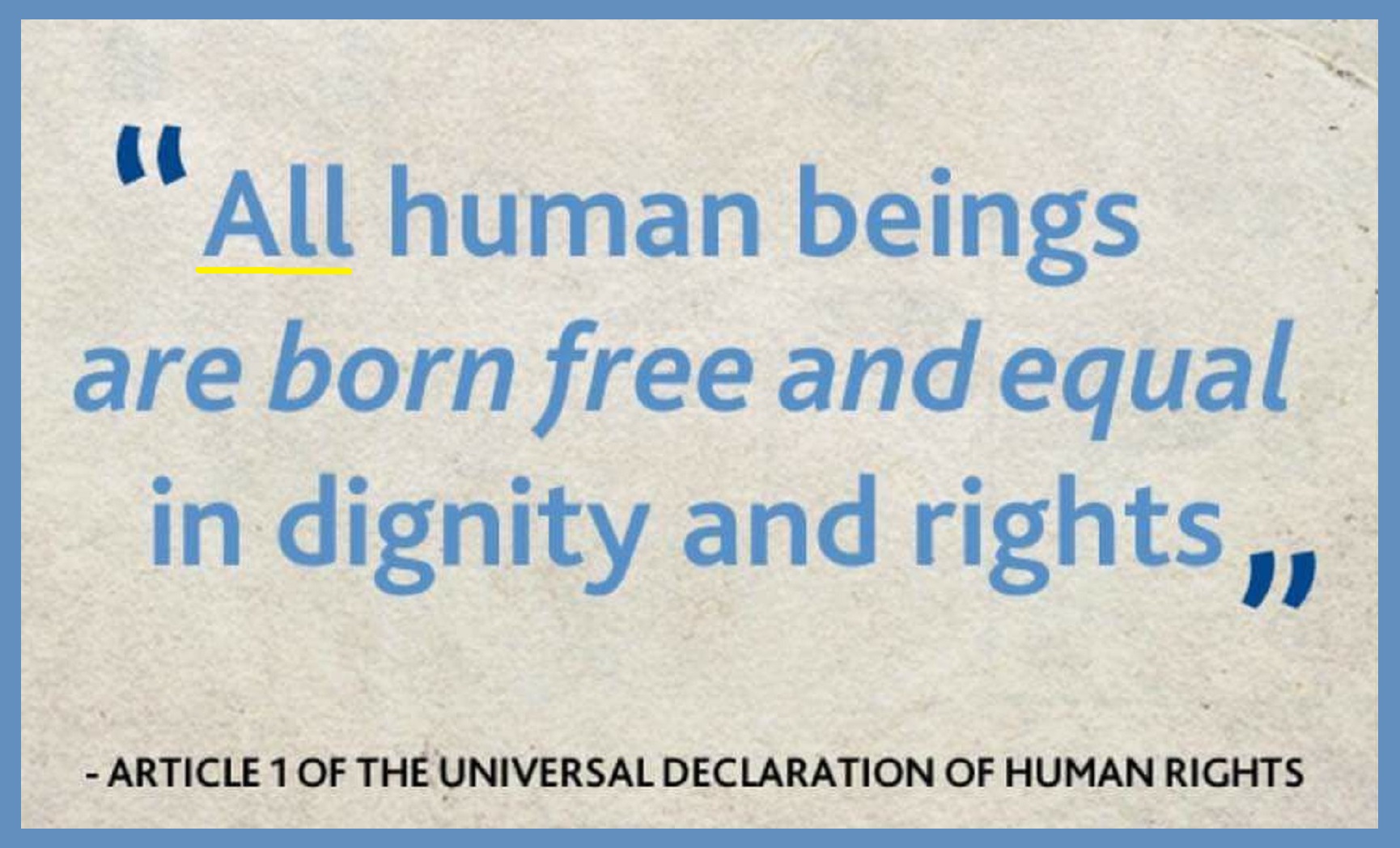
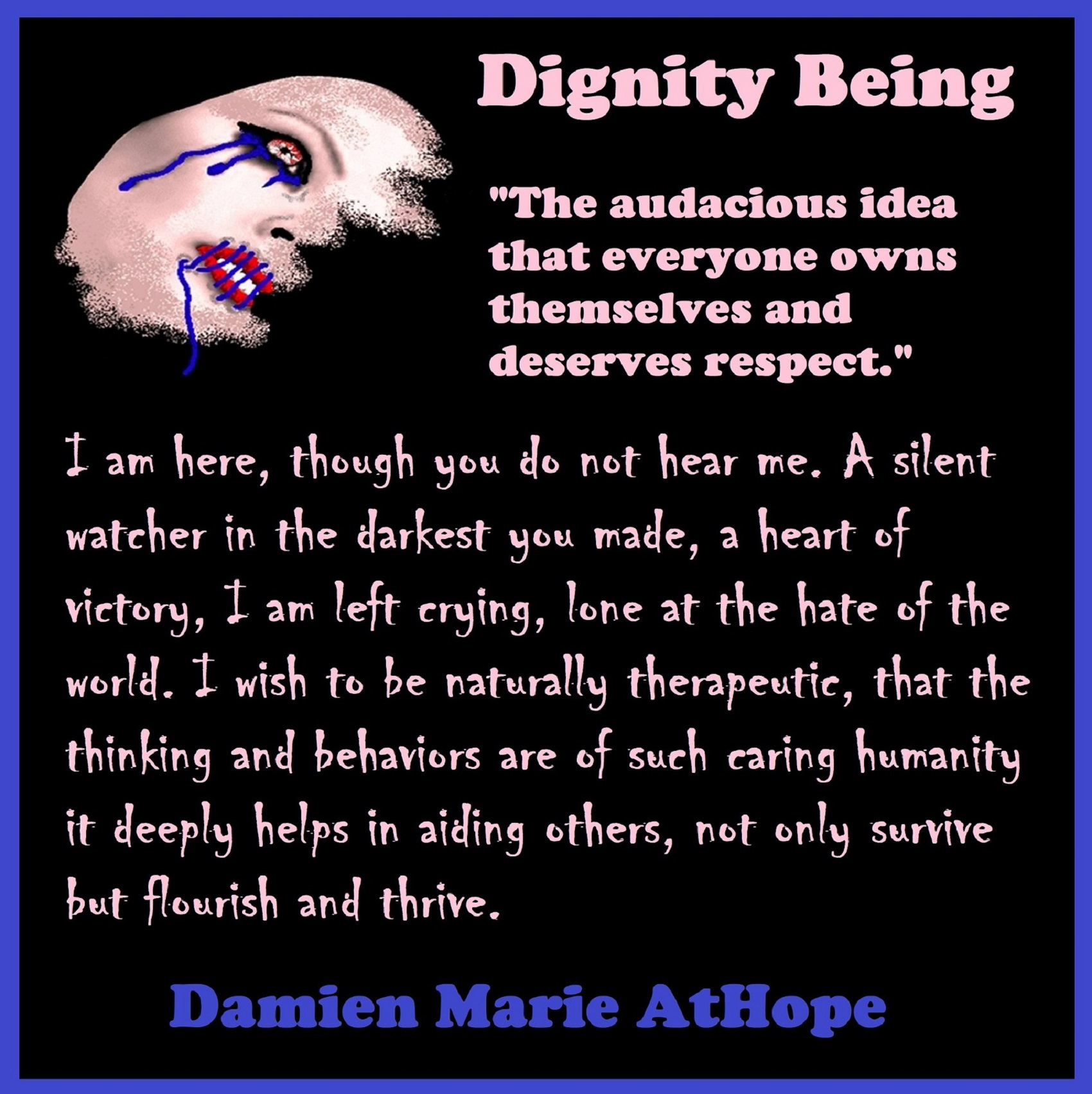
Harm is often a violation of trust and a violation of expected trust makes bad things even worse, like if I told you a child was killed, you would feel it was terrible but if I further told you it was the child’s doctor that murdered the child out of anger. You would be more angered as doctors are expected to care for people not harm them. And if you think that is bad what if I further told you the doctor who killed the child was her mother would you hold her even mone in contempt as mothers also are expected to care and not kill children, so violation of trust is terrible and even makes things worse. Therefore, we can see why people that hold places of trust should never abuse them, and that we should hold them accountable if they do violate such trust by harming others. Morality first, that is morality should be at the forefront in all I do. I hope I am always strong enough to put my morality at the forefront in all I do, so much so, that it is obvious in the ways I think and behave. To better grasp a naturalistic morality one should see the perspective of how there is a self-regulatory effect on the self-evaluative moral emotions, such as shame and guilt. Broadly conceived, self-regulation distinguishes between two types of motivation: approach/activation and avoidance/inhibition. one should conceptually understand the socialization dimensions (parental restrictiveness versus nurturance), associated emotions (anxiety versus empathy), and forms of morality (proscriptive versus prescriptive) that serve as precursors to each self-evaluative moral emotion.
Axiological Morality Critique of Pseudo-Morality/Pseudomorality?
Real Morality vs. Pseudo Morality
Religions Promote Pseudo-Morality
Think there is no objective morality?
True Morality Not the Golden Rule…
Axiological Atheism Morality Critique: of the bible god
Babies & Morality?
“They believe babies are in fact born with an innate sense of morality, and while parents and society can help develop a belief system in babies, they don’t create one. A team of researchers at Yale University’s Infant Cognition Center, known as The Baby Lab, showed us just how they came to that conclusion.” Ref
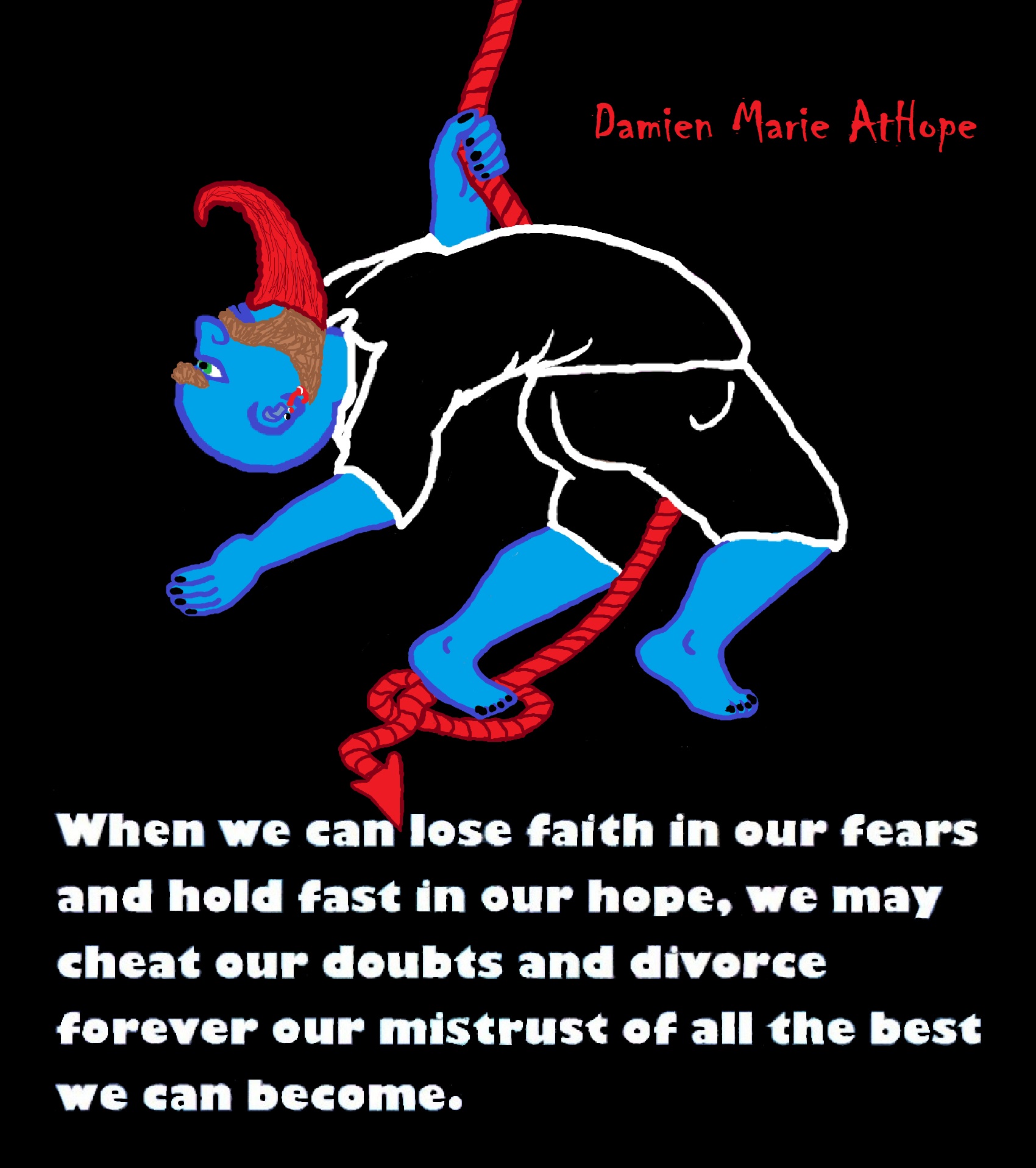
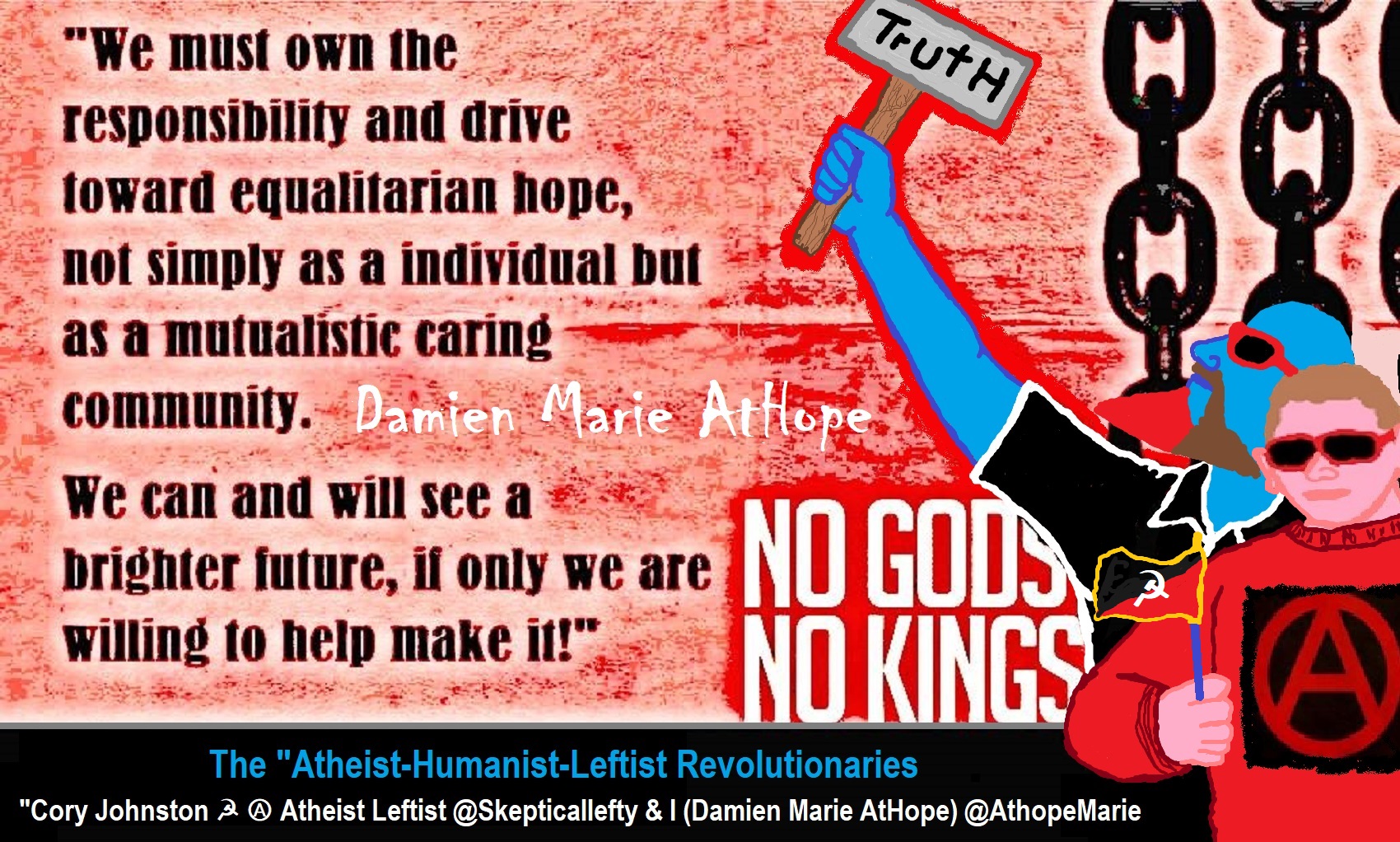
While hallucinogens are associated with shamanism, it is alcohol that is associated with paganism.
The Atheist-Humanist-Leftist Revolutionaries Shows in the prehistory series:
Show two: Pre-animism 300,000 years old and animism 100,000 years old: related to “Anarchism and Socialism”
Show tree: Totemism 50,000 years old: related to “Anarchism and Socialism”
Show four: Shamanism 30,000 years old: related to “Anarchism and Socialism”
Show five: Paganism 12,000 years old: related to “Anarchism and Socialism”
Show six: Emergence of hierarchy, sexism, slavery, and the new male god dominance: Paganism 7,000-5,000 years old: related to “Anarchism and Socialism” (Capitalism) (World War 0) Elite and their slaves!
Prehistory: related to “Anarchism and Socialism” the division of labor, power, rights, and recourses: VIDEO
Pre-animism 300,000 years old and animism 100,000 years old: related to “Anarchism and Socialism”: VIDEO
Totemism 50,000 years old: related to “Anarchism and Socialism”: VIDEO
Shamanism 30,000 years old: related to “Anarchism and Socialism”: VIDEO
Paganism 12,000 years old: related to “Anarchism and Socialism” (Pre-Capitalism): VIDEO
Paganism 7,000-5,000 years old: related to “Anarchism and Socialism” (Capitalism) (World War 0) Elite and their slaves: VIEDO
Paganism 5,000 years old: progressed organized religion and the state: related to “Anarchism and Socialism” (Kings and the Rise of the State): VIEDO
Paganism 4,000 years old: related to “Anarchism and Socialism” (First Moralistic gods, then the Origin time of Monotheism): VIEDO
I do not hate simply because I challenge and expose myths or lies any more than others being thought of as loving simply because of the protection and hiding from challenge their favored myths or lies.
The truth is best championed in the sunlight of challenge.
An archaeologist once said to me “Damien religion and culture are very different”
My response, So are you saying that was always that way, such as would you say Native Americans’ cultures are separate from their religions? And do you think it always was the way you believe?
I had said that religion was a cultural product. That is still how I see it and there are other archaeologists that think close to me as well. Gods too are the myths of cultures that did not understand science or the world around them, seeing magic/supernatural everywhere.
I personally think there is a goddess and not enough evidence to support a male god at Çatalhöyük but if there was both a male and female god and goddess then I know the kind of gods they were like Proto-Indo-European mythology.
This series idea was addressed in, Anarchist Teaching as Free Public Education or Free Education in the Public: VIDEO
Our 12 video series: Organized Oppression: Mesopotamian State Force and the Politics of power (9,000-4,000 years ago), is adapted from: The Complete and Concise History of the Sumerians and Early Bronze Age Mesopotamia (7000-2000 BC): https://www.youtube.com/watch?v=szFjxmY7jQA by “History with Cy“
Show #1: Mesopotamian State Force and the Politics of Power (Samarra, Halaf, Ubaid)
Show #2: Mesopotamian State Force and the Politics of Power
Show #3: Mesopotamian State Force and the Politics of Power (Uruk and the First Cities)
Show #4: Mesopotamian State Force and the Politics of Power (First Kings)
Show #5: Mesopotamian State Force and the Politics of Power (Early Dynastic Period)
Show #6: Mesopotamian State Force and the Politics of Power
Show #7: Mesopotamian State Force and the Politics of Power (Sargon and Akkadian Rule)
Show #9: Mesopotamian State Force and the Politics of Power (Gudea of Lagash and Utu-hegal)
Show #12: Mesopotamian State Force and the Politics of Power (Aftermath and Legacy of Sumer)
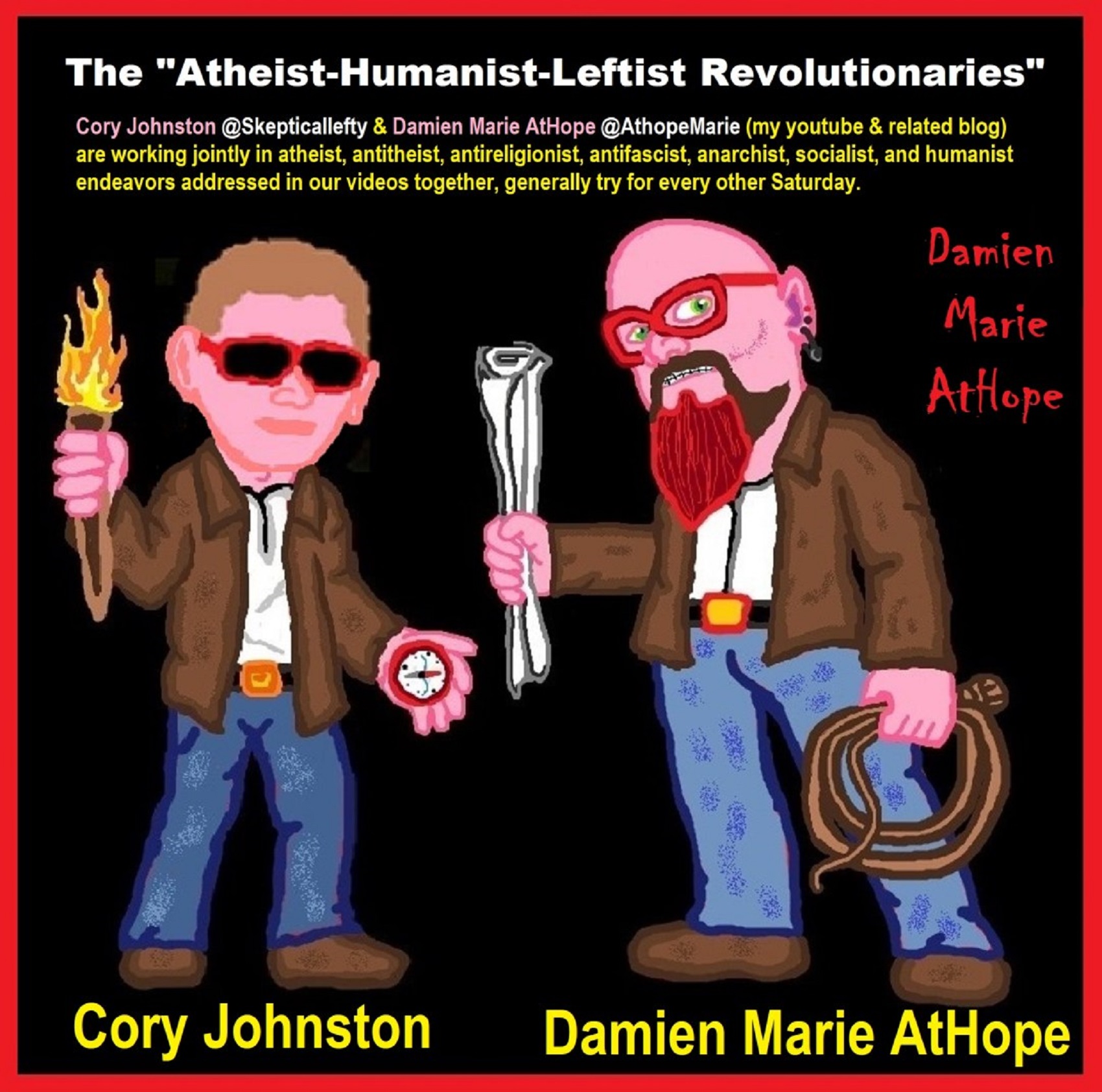
The “Atheist-Humanist-Leftist Revolutionaries”
Cory Johnston ☭ Ⓐ Atheist Leftist @Skepticallefty & I (Damien Marie AtHope) @AthopeMarie (my YouTube & related blog) are working jointly in atheist, antitheist, antireligionist, antifascist, anarchist, socialist, and humanist endeavors in our videos together, generally, every other Saturday.
Why Does Power Bring Responsibility?
Think, how often is it the powerless that start wars, oppress others, or commit genocide? So, I guess the question is to us all, to ask, how can power not carry responsibility in a humanity concept? I know I see the deep ethical responsibility that if there is power their must be a humanistic responsibility of ethical and empathic stewardship of that power. Will I be brave enough to be kind? Will I possess enough courage to be compassionate? Will my valor reach its height of empathy? I as everyone, earns our justified respect by our actions, that are good, ethical, just, protecting, and kind. Do I have enough self-respect to put my love for humanity’s flushing, over being brought down by some of its bad actors? May we all be the ones doing good actions in the world, to help human flourishing.
I create the world I want to live in, striving for flourishing. Which is not a place but a positive potential involvement and promotion; a life of humanist goal precision. To master oneself, also means mastering positive prosocial behaviors needed for human flourishing. I may have lost a god myth as an atheist, but I am happy to tell you, my friend, it is exactly because of that, leaving the mental terrorizer, god belief, that I truly regained my connected ethical as well as kind humanity.
Cory and I will talk about prehistory and theism, addressing the relevance to atheism, anarchism, and socialism.
At the same time as the rise of the male god, 7,000 years ago, there was also the very time there was the rise of violence, war, and clans to kingdoms, then empires, then states. It is all connected back to 7,000 years ago, and it moved across the world.
Cory Johnston: https://damienmarieathope.com/2021/04/cory-johnston-mind-of-a-skeptical-leftist/?v=32aec8db952d
The Mind of a Skeptical Leftist (YouTube)
Cory Johnston: Mind of a Skeptical Leftist @Skepticallefty
The Mind of a Skeptical Leftist By Cory Johnston: “Promoting critical thinking, social justice, and left-wing politics by covering current events and talking to a variety of people. Cory Johnston has been thoughtfully talking to people and attempting to promote critical thinking, social justice, and left-wing politics.” http://anchor.fm/skepticalleft
Cory needs our support. We rise by helping each other.
Cory Johnston ☭ Ⓐ @Skepticallefty Evidence-based atheist leftist (he/him) Producer, host, and co-host of 4 podcasts @skeptarchy @skpoliticspod and @AthopeMarie
Damien Marie AtHope (“At Hope”) Axiological Atheist, Anti-theist, Anti-religionist, Secular Humanist. Rationalist, Writer, Artist, Poet, Philosopher, Advocate, Activist, Psychology, and Armchair Archaeology/Anthropology/Historian.
Damien is interested in: Freedom, Liberty, Justice, Equality, Ethics, Humanism, Science, Atheism, Antiteism, Antireligionism, Ignosticism, Left-Libertarianism, Anarchism, Socialism, Mutualism, Axiology, Metaphysics, LGBTQI, Philosophy, Advocacy, Activism, Mental Health, Psychology, Archaeology, Social Work, Sexual Rights, Marriage Rights, Woman’s Rights, Gender Rights, Child Rights, Secular Rights, Race Equality, Ageism/Disability Equality, Etc. And a far-leftist, “Anarcho-Humanist.”
I am not a good fit in the atheist movement that is mostly pro-capitalist, I am anti-capitalist. Mostly pro-skeptic, I am a rationalist not valuing skepticism. Mostly pro-agnostic, I am anti-agnostic. Mostly limited to anti-Abrahamic religions, I am an anti-religionist.
To me, the “male god” seems to have either emerged or become prominent around 7,000 years ago, whereas the now favored monotheism “male god” is more like 4,000 years ago or so. To me, the “female goddess” seems to have either emerged or become prominent around 11,000-10,000 years ago or so, losing the majority of its once prominence around 2,000 years ago due largely to the now favored monotheism “male god” that grow in prominence after 4,000 years ago or so.
My Thought on the Evolution of Gods?
Animal protector deities from old totems/spirit animal beliefs come first to me, 13,000/12,000 years ago, then women as deities 11,000/10,000 years ago, then male gods around 7,000/8,000 years ago. Moralistic gods around 5,000/4,000 years ago, and monotheistic gods around 4,000/3,000 years ago.
To me, animal gods were likely first related to totemism animals around 13,000 to 12,000 years ago or older. Female as goddesses was next to me, 11,000 to 10,000 years ago or so with the emergence of agriculture. Then male gods come about 8,000 to 7,000 years ago with clan wars. Many monotheism-themed religions started in henotheism, emerging out of polytheism/paganism.
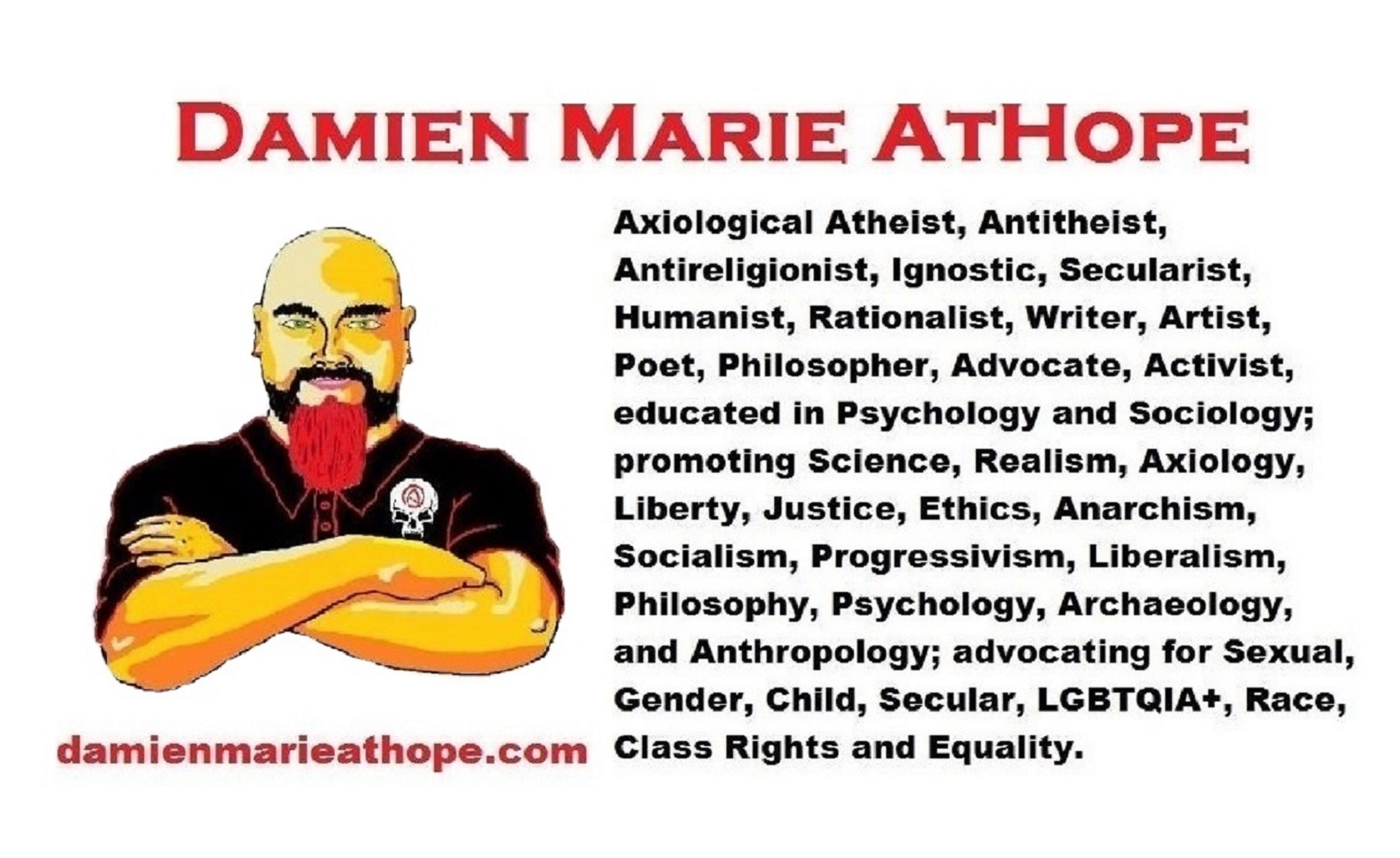
Damien Marie AtHope (Said as “At” “Hope”)/(Autodidact Polymath but not good at math):
Axiological Atheist, Anti-theist, Anti-religionist, Secular Humanist, Rationalist, Writer, Artist, Jeweler, Poet, “autodidact” Philosopher, schooled in Psychology, and “autodidact” Armchair Archaeology/Anthropology/Pre-Historian (Knowledgeable in the range of: 1 million to 5,000/4,000 years ago). I am an anarchist socialist politically. Reasons for or Types of Atheism
My Website, My Blog, & Short-writing or Quotes, My YouTube, Twitter: @AthopeMarie, and My Email: damien.marie.athope@gmail.com

